SUSTAINABILITY PIONEERS
How can CEOs meet stakeholder expectations?
Generative AI for business leaders


How can CEOs meet stakeholder expectations?
Generative AI for business leaders

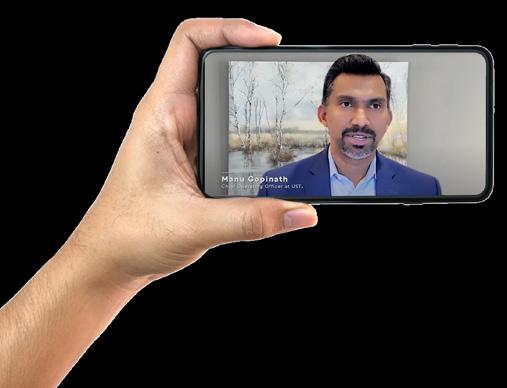
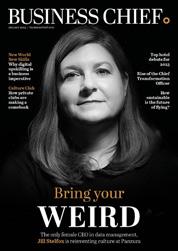
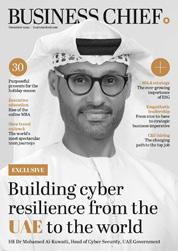
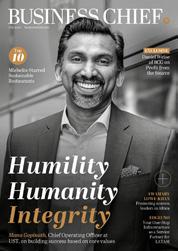














































Business Chief magazine is an established and trusted voice with an engaged and highly targeted audience of 670,000 global executives
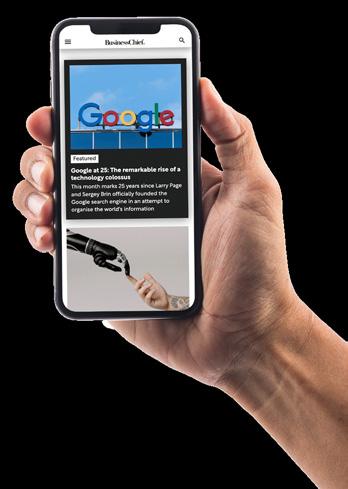
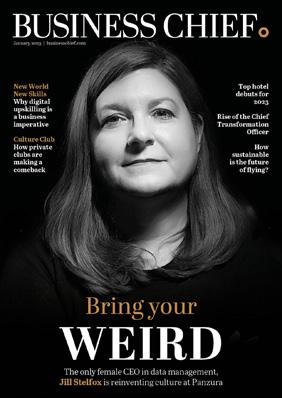








Digital Magazines

Website Newsletters
Industry Data & Demand Generation

Webinars: Creation & Promotion
White Papers & Research Reports
Lists: Top 10s & Top 100s
Events: Virtual & In-Person
WORK WITH US

EDITOR-IN-CHIEF
SCOTT BIRCH
EDITORS
KATE BIRCH
CHEIF DESIGN OFFICER
MATT JOHNSON
HEAD OF DESIGN
ANDY WOOLLACOTT
LEAD DESIGNER
SOPHIE-ANN PINNELL
FEATURE DESIGNERS
SOPHIE-ANN PINNELL
HECTOR PENROSE
SAM HUBBARD
MIMI GUNN
REBEKAH BIRLESON
JULIA WAINWRIGHT
ADVERT DESIGNERS
JORDAN WOOD
DANILO CARDOSO
CALLUM HOOD
VIDEO PRODUCTION MANAGER
KIERAN WAITE
SENIOR VIDEOGRAPHER
HUDSON MELDRUM
DIGITAL VIDEO PRODUCERS
ERNEST DE NEVE
THOMAS EASTERFORD
DREW HARDMAN
SALLY MOUSTAFA
PRODUCTION DIRECTORS
GEORGIA ALLEN
DANIELA KIANICKOVÁ
PRODUCTION MANAGERS
JANE ARNETA
MARIA GONZALEZ
CHARLIE KING
YEVHENIIA SUBBOTINA
KENDRA LAU
PROJECT DIRECTORS
THOMAS LIVERMORE
MICHAEL BANYARD
JAKE MEGEARY
RYAN HALL
TOM VENTURO
STUART IRVING
JAMES BERRY
MARKETING MANAGER
KAYLEIGH SHOOTER
MEDIA SALES DIRECTOR
JAMES WHITE
JASON WESTGATE
MANAGING DIRECTOR
LEWIS VAUGHAN
CEO
GLEN WHITE

Transformation can be both a challenge and a privilege. Regular readers of Business Chief will note that this issue marks the start of a new chapter in the 100-issue history of our brand, as we expand to now include four regional editions for truly global coverage.
You are reading Business Chief Middle East & Africa, and from today you can also enjoy insights and executive success stories from Business Chief US & Canada. From next month, we switch to Business Chief Asia & ANZ and Business Chief UK & Europe. These four editions combine into a comprehensive deep dive into the challenges and opportunities facing CEOs, founders and public sector leaders right now, and in the future.
From Generative AI to Gen Z, green finance to black swans, Business Chief 4.0 has you covered with exclusive interviews, roundtable discussions, and the latest research and reports.

Striking a work-life balance, you will also see more Lifestyle content for our executive audience, especially on our reimagined websites.
Plus, there’s more to come, with two new titles joining the Chief portfolio in November and December. Exciting times.
SCOTT BIRCH Chief Content Officer, BizClik scott.birch@bizclikmedia.com
From Generative
AI to Gen Z, green finance to black swans, Business Chief 4.0 has you covered




38 MBZUAI
MBZUAI procurement building a bright future for AI in the UAE
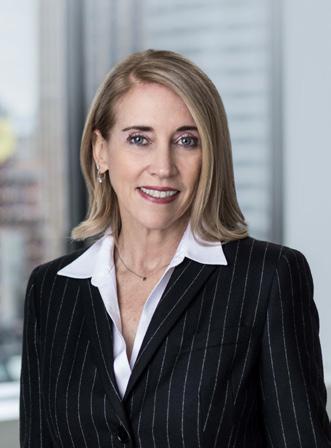
52 LEADERSHIP
The importance of shareholder value as regional IPO's boom
60 KING SAUD MEDICAL CITY
Digital health & AI advancements
72 PEOPLE
The power of putting people first
90 SUSTAINABILITY
Microsoft sustainability chief Sherif Tawfik on COP28 opportunity

96 TECHNOLOGY
The how, what and why of Generative AI for business
106 TRAVEL
Ready for takeoff
114 CITY FOCUS
Dubai Rising - Why tech entrepreneurs are setting up in the city

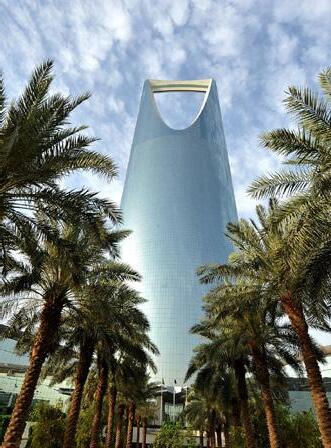

122 LIFESTYLE
Ultimate guide to three hottest Middle East startup cities
While many Gulf states, from Saudi to the UAE, have been rushing to retool their economies as they reduce dependence on oil, Kuwait has been stubbornly hanging on to its crude oil revenues.
With around 7% of the world’s oil reserves, this resource continues to be Kuwait’s main form of income, contributing 50% of GDP.
But change is afoot, as the oil-rich nation announces plans to establish a new sovereign fund with the aim of developing mega projects and fuelling economic growth. This follows the installation of a new government in June, the fifth in less than a year.
Unliked Kuwait’s KIA sovereign wealth fund, which is the world’s oldest, the new Ciyada Development Fund will work with the private sector to spearhead domestic investments, including mega developments, and attract foreign and private investment funding.
Sovereign wealth funds like Abu Dhabi’s Mubadala Development Co and Saudi’s Public Investment Fund are powering the economic diversification taking place in the region.

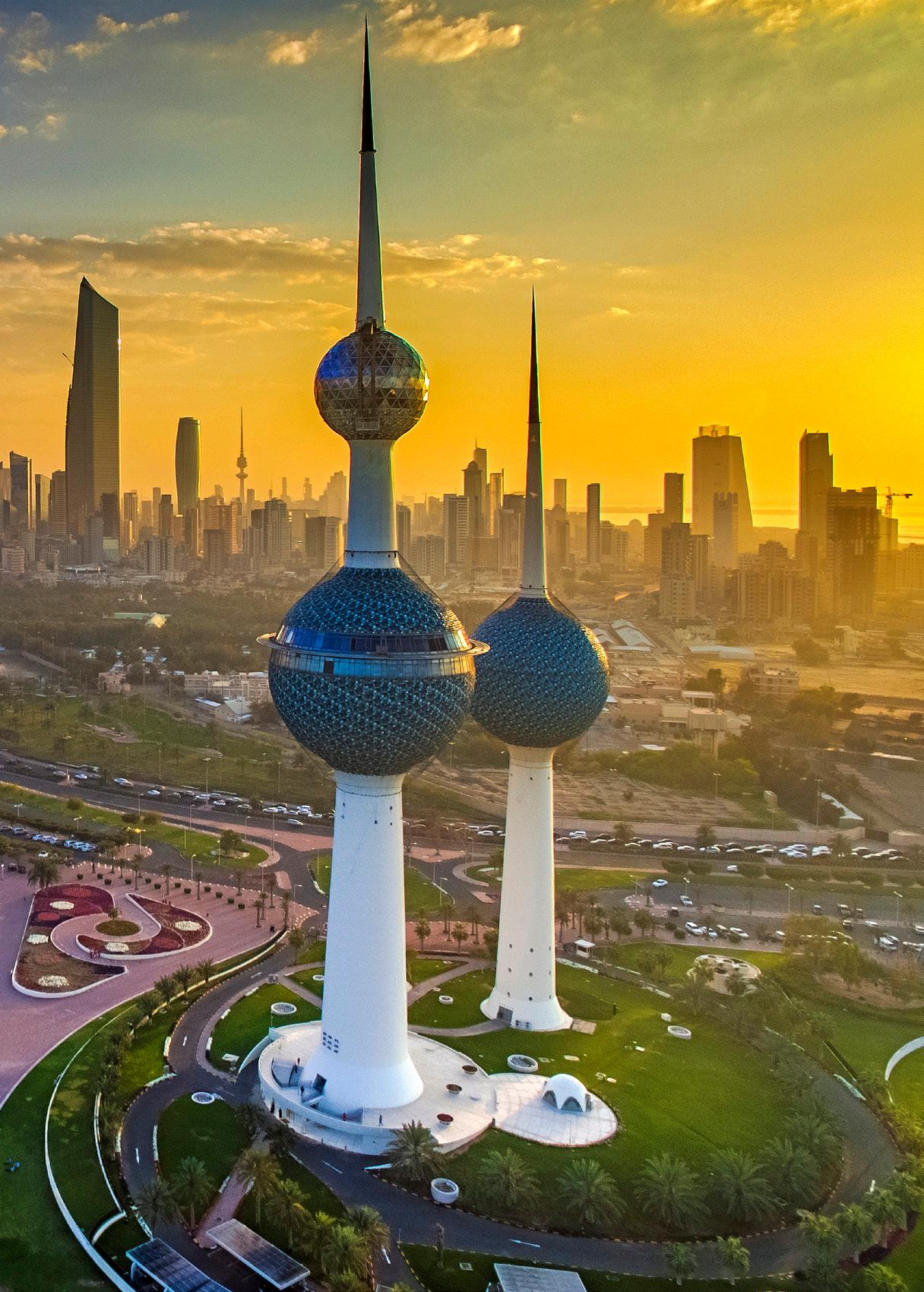

















Head of the UAE for Oliver Wyman, Adel Alfalasi discusses his passion for transformation, commitment to fostering future Emirati talent, and why practicing jiu-jitsu is good for business
WRITTEN BY: KATE BIRCH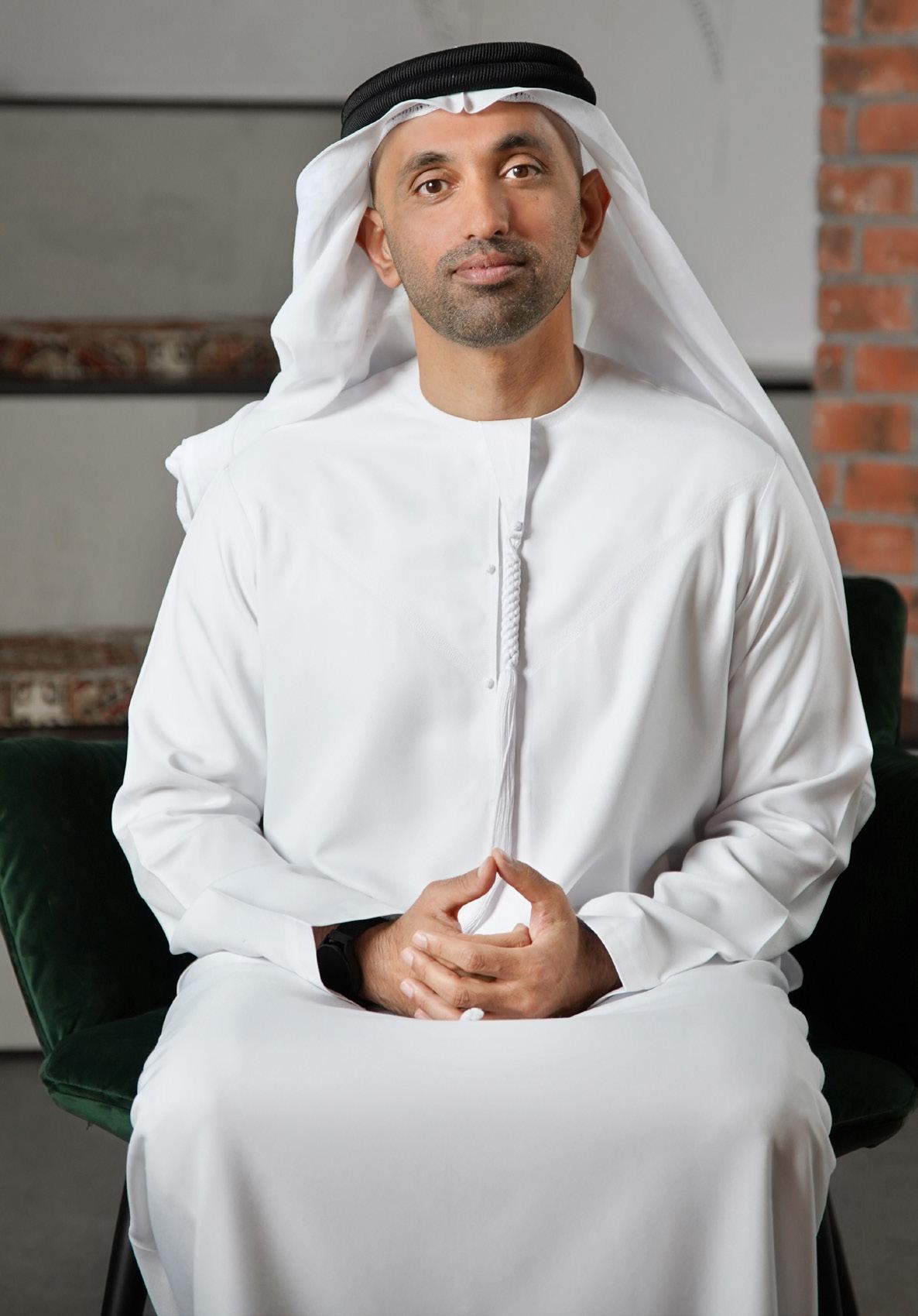
s Oliver Wyman’s recently appointed CEO for the UAE, Adel Alfalasi is driving change in the country.
With more than two decades of experience holding senior positions across the UAE’s private and public sector, Adel previously served as Executive Director in the UAE Prime Minister’s Office before moving into management consulting.
An expert on large-scale transformations, Adel is passionate about solving problems for his clients.
He is passionate too about fostering future Emirati talent, both leading Oliver Wyman’s Consultant Development Programme in the UAE and sitting on the board of non-profit organisation Injaz.
And when he’s not working with clients or young talent, Adel can be found writing (he is co-authoring a book on The New Silk Road) or practising Brazilian jiu-jitsu.
Adel, give us an overview of your impressive career to date, what have been the highlights?
During my time at the Prime Minister’s Office and since moving into consulting, I’ve worked closely with the country’s leadership to translate visions into reality – these moments will forever be a highlight for me.
Working both in the private and public sectors throughout my career, it’s been great to see partnerships and synergies really working. For instance, I was a key team
member on two mergers of the largest banks in the UAE. Seeing these coming together to create financial powerhouses made me fall in love with transformation.
Many people get excited about M&A, the deal side, but I get particularly excited dealing with the aftermath. For me it’s about the ambitions, the scale, realising the synergies, and it’s also about the details, and getting the most out of the integration.
Experiences like this also mean that, in my current role at management consultancy Oliver Wyman, I really understand what the clients are going through.
How important is sustainability when it comes to transformation? Should it drive every decision?
There are a few things that absolutely cannot be put aside when it comes to crafting strategic plans, and sustainability is one of them. It doesn’t matter if you’re in manufacturing, a service provider, or an investment company, ESG must be core to any decision-making.
The nature of a transformation is changing things, and this gives you a chance to insert things that weren’t there before, or to highlight things that weren’t properly highlighted. ESG policies can be one of those things.
Also, sustainability as an objective can be driven through digital transformations. Digital maturity improves efficiencies, helps reduce waste, enhances productivity, and supports better decision making. In short, sustainability
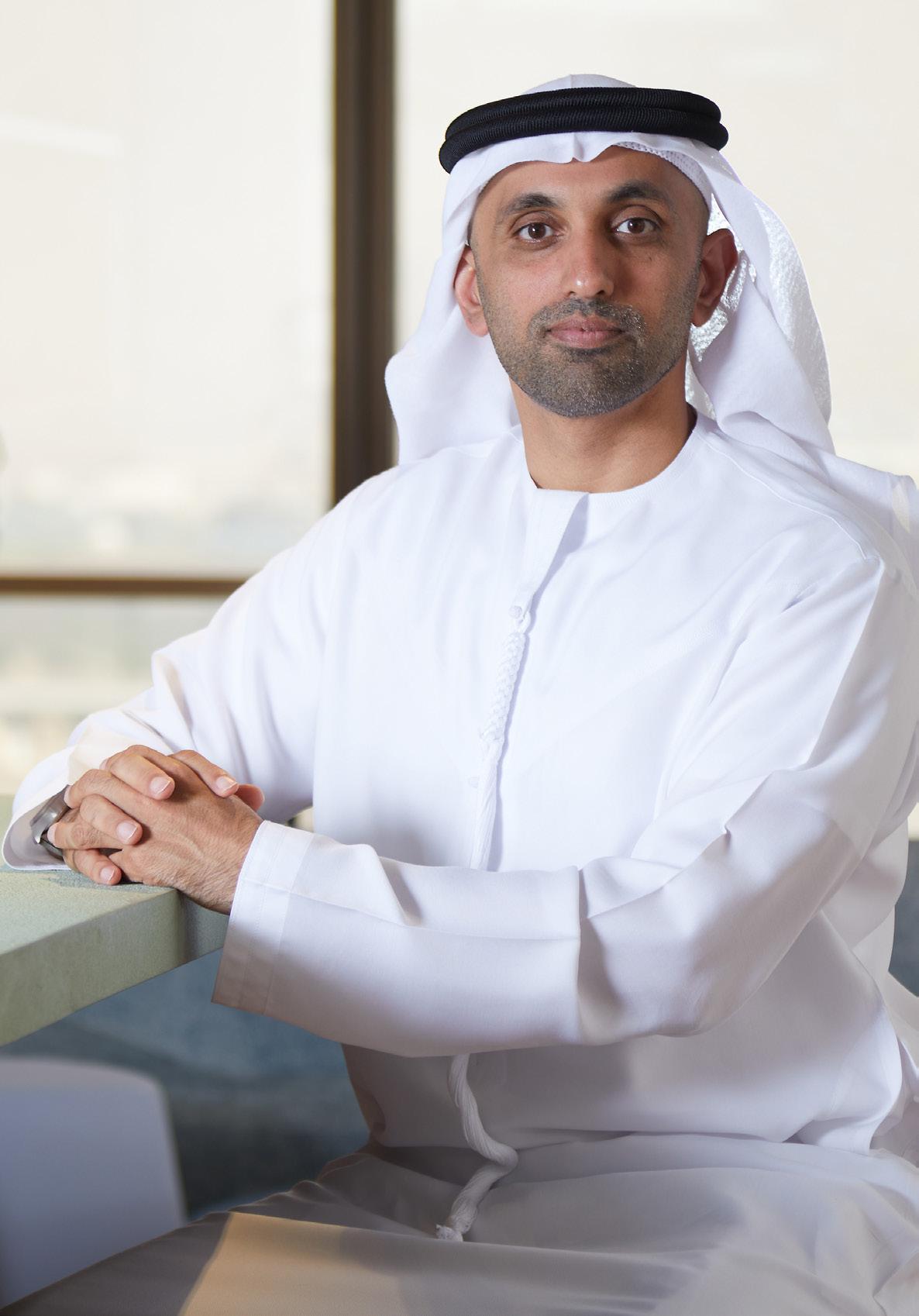
Practising Brazilian jiu-jitsu has taught me the importance of discipline, strategy and energy management. Jiu-jitsu is often called human chess because it’s all about harnessing the ability to think multiple steps ahead, anticipate different scenarios, and plan accordingly. Then there’s energy management, which definitely relates to consulting. It’s not about throwing
resources at a problem inefficiently. You have to remember that it’s a marathon not a sprint. It’s not just about size, but skillset. You shouldn’t use all your energy at the start of a match. This relates to a transformation project too – you can’t run out of steam. You need to think ahead, and need to think about how you manage your resources.
-should not be looked at in isolation from what else happening in the organisation, but rather can be linked to other growth and transformation plans.
You have worked extensively in the public sector, how important are public-private partnerships for the future of the UAE? Extremely important – in fact, it’s always been one of the cornerstones of how the government operates in the UAE. And there is no one-size-fits-all: PPPs can take many forms and can have multiple modes of engagement.
Really, it’s about working with the private sector to add expertise in order to deliver
better services for people living in – and also visiting – the UAE. These partnerships are about achieving these goals in a way that is efficient, and in line with how leadership wants to serve the people of the UAE. It’s also, importantly, about sharing risk.

You specialise in transformation, how do you hope to transform Oliver Wyman? Oliver Wyman is a living example of continuous reinvention. Here, transformation isn’t a project, it’s built into the way we operate. So, when I joined Oliver Wyman, my expertise became part of that transformation engine. And being the UAE Market Lead for Oliver Wyman,
Interview available in Arabic
I’m just one key member of this multi-faceted transformation engine. We are at the cutting edge – in terms of both technology and ways of thinking – and we take that to our clients, so it’s really part of the company’s DNA.
Tell us about the Consultant Development Programme and Injaz? How important is it to nurture Emirati talent and develop entrepreneurial spirit?
We, as a country, are going through an economic transformation – the strategy of the UAE is gearing towards the post-oil era, building economic diversification, and continuing to strengthen the knowledgebased economy. That’s why things such as Consultant Development Programme (CDP)
and Injaz are so important, and that’s why we support and invest in them at Oliver Wyman.
The CDP for Emiratis is not just a training programme, it actually builds a bridge for Emiratis to join consulting. And it’s also an investment from Oliver Wyman into Emirati talent. Meanwhile, Injaz is an organisation that has done amazing work in supporting young entrepreneurs and instilling the spirit of entrepreneurship across the UAE. Oliver Wyman is a supporter of Injaz, and I’ve stepped into that role to be on their board – and I really appreciate being able to do such work.


Among the most senior women leaders in East Africa, CEO Jane Karuku is driving Diageo-owned East African Breweries to be bigger, bolder – and better
WRITTEN BY: KATE BIRCHJane Karuku is passionate about bringing the largest and most profitable manufacturer in Central and East Africa towards a sustainable and diverse future.
As the first female chief executive of East African Breweries Limited (EABL), one of Kenya’s oldest companies, Jane has put in place ambitious targets that will see women occupy
half of the company’s 2,500-strong workforce including leadership roles by 2030.
Under Jane’s leadership, first as Managing Director for eight years, and CEO since 2021, EABL has rolled out numerous initiatives aimed at empowering women to become business leaders.
Among these, a programme to train female graduates, education for all departments on unconscious bias, measures to increase the
MY PURPOSE IN LIFE IS TO GROW PEOPLE WITH ENERGY, TO INSPIRE THEM TO UNLEASH THEIR POTENTIAL

percentage of female suppliers, and the Spirited Women Network, which focuses on female employee mentorship and retention. The manufacturer, which is majorityowned (50.03%) by beverages giant Diageo, made history in 2019 when it became the first-ever firm in Kenya to implement a 26-week maternity leave and four-week paternity leave policy.
Jane says that the policy has paid off, enhancing the productivity of workers,
and directly contributing to the increase in revenues.
Serving as CEO at EABL is ‘a calling’ In sustainability too, Jane has made her mark at the manufacturer, which counts more than 40 brands including Tusker, Johnnie Walker, Smirnoff, and Guinness within its diverse portfolio – and has pledged to become Net Zero in direct operations by 2030.
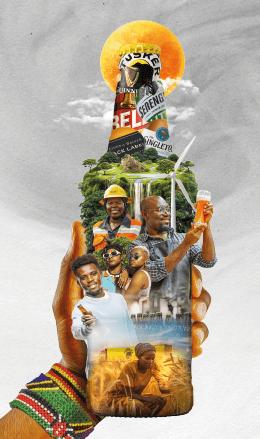

Jane has a 25-year track record of leading organisations in Africa to growth, both FMCG listed companies and NGOs, and has been recognised among 50 female corporate leaders on the continent. As well as serving in leadership roles at Telkom Kenya, as Deputy CEO, and Cadbury’s East and Central Africa, she led one of Africa’s largest grant-making organisations in the food security and agricultural development sector (AGRA) and
has held executive positions at Farmers Choice Kenya and Kenya Cooperative Creameries. CEO of EABL since January 2021, she has turned around the manufacturer’s financial and operational performance and overhauled its culture. She is Chairperson of Kenya’s Vision 2030 Board, a board member of the Kenya Association of Manufacturers and has an MBA in Marketing from the National University of California.
Under her tenure, EABL published its inaugural and award-winning Sustainability Report (2021), in which the manufacturer outlined a US$5 million 10-year fund to help pubs and bars recover from the Covid-19 pandemic, and an ambitious target to source up to 80% of all raw materials locally.
EABL’s second report (2022), in the year of its Centenary, reached more ambitious heights with the detailing an investment of Sh5.1 billion (US$37 million) to establish biomass plants in Kenya and Uganda, part of extensive plans to reduce carbon emissions by 95% annually.
“For me, serving at EABL is a calling,” Jane said in an interview in 2021.
“This is a business that is integrated to improve the lives of the communities we operate in. When you work at EABL, you work for more than a salary because we serve a considerable ecosystem.”
That ecosystem comprises more than 60,000 farmers, 2,500 workers and seven factories across East Africa.
As well as contributing around 1% of Kenya’s GDP, EABL is the number one excise duty taxpayer in Kenya and during the last 5-6 years, has been among the top five companies in the region.
Jane, who first joined EABL’s board just under a decade ago, has been instrumental in steering the brewery giant to greater
EABL was born with the brewing of its first-ever beer. Last year, the company celebrated its centenary
22%
Female representation in senior leadership at EABL, up 3% from 2021, and with plans to reach 50% by 2030
heights, not just the ESG agenda, but in driving innovations, launching new products, and putting in place strategic pricing and effective cost management during times of economic uncertainty.
In 2021, she turned around EABL’s financial and operational performance, surpassing the firm’s pre-pandemic net sales to US$62 million, and in 2022, despite rising inflation and an increase in excise taxes, she led the company to its highest profits in five years.
As Jane said at the time, these results reflect “the high-performance culture we have created across the business, the rigorous execution of our strategy, the strength of our portfolio across categories, and our agility in responding to emerging trends and insights”.









Knowledge Partners







Discover the companies leading the way, setting the pace and inspiring global business change. READ NOW


From the UAE to Saudi, these organisations are not only putting ESG at the heart of their own operations, but pioneering solutions to shape a more sustainable world
WRITTEN BY: KATE BIRCHWhile the Gulf nations are major oil and gas producers, they are increasingly playing a significant role in supporting global efforts to achieve net-zero with five of the six GCC states (Bahrain, Oman, Kuwait, Saudi and the UAE) committed to achieving net-zero targets.
Many too, the UAE and Saudi especially, have made significant strides in rolling out lowcarbon energy investments and initiatives and there are clear signs that financial institutions are increasingly participating in financing sustainable and climate-friendly projects.
The region’s sovereign wealth funds have been a key part of efforts to support green investments, while government-backed megaprojects like Saudi’s NEOM and Abu Dhabi’s Masdar City are paving the way for truly sustainable living.
And so, in this Year of Sustainability for the UAE and in the run-up to COP28, which takes place in the UAE in Nov/Dec 2023, we pay tribute to ten GCC-based companies spearheading change regionally and pioneering solutions to help shape a more sustainable world.

Headquaters: Dubai
CEO: Daniel Zywietz
Founded: 2017
As the world’s first distributed solar utility company, with 30 operating micro-grids across the Middle East, Enerwhere powers commercial, industry customers, from oil/gas to hospitality, with solar hybrid solutions. One of the early pioneers of using renewable energy in the temporary power sector, Enerwhere built its first off-grid solar plant in the UAE in 2014 when everything else was still running on 100% diesel.
What distinguishes Enerwhere from other solar companies is taking responsibility for the client’s entire power supply, not just solar. Landmark projects include the world’s largest solar-powered construction site in JLT, the first ultra-mobile solar plant for the oil and gas industry in Oman, and a solar plant to power Abu Dhabi’s 5-star Zaya Nurai Island resort, the region’s first nearshore open sea floating structure.
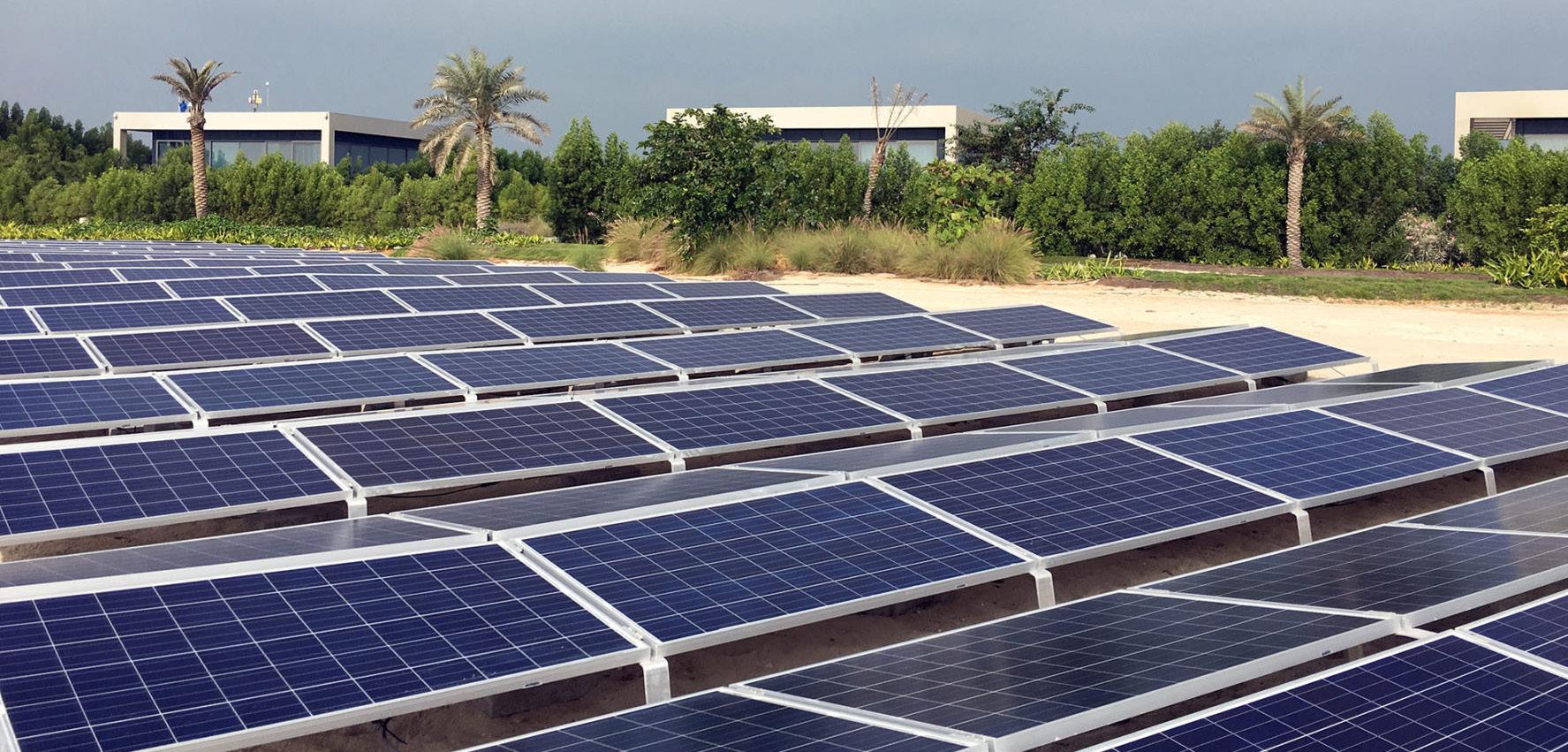
Headquaters: Abu Dhabi
CEO: Ali Al Dhaheri
Founded: 2004
The Abu Dhabi Waste Management Centre, Tadweer, has established its position as a pioneer in waste management – using state-of-the-art technology to provide partners with sustainable solutions. Recently, the company launched the region’s first 100% electric waste-collection truck, as it looks to set the stage for EV adoption.
Part of holding company ADQ, Tadweer is increasingly working with partners to pioneer ways to extract value through recycling and reuse of waste, most recently collaborating with Masdar, bp, ADNOC and Emirates to explore the production of SAF (sustainable aviation fuel) and other renewable fuel solutions including diesel and hydrogen.

Headquaters: Dubai
Chairman / MD: Dr Azad Moopen
Founded: 1987
As one of the largest integrated healthcare providers in the GCC and India, Aster boasts the highest level of ESG rating, having integrated 11 UN SDGs into its ESG policies. The Group, which has 697 facilities across seven countries, and employs a diverse workforce of 27,200, is the only listed company to feature in Corporate Knights Global 100 – ranked the world’s 94th most sustainable company – and has secured many awards for CSR and community initiatives.
Among sustainability efforts, Aster is rolling out renewable energy across its hospitals and recycling water, while its award-winning CSR project Aster Volunteers has touched the lives of more than 4 million people, including organising the world’s largest-ever free diabetes screening camp for low-income workers.

Headquaters: Riyadh, KSA
CEO: Marco Arcelli
Founded: 2004
PIF-backed ACWA Power is a leading and pioneering Saudi developer, investor, and operator of power generation, water desalination and green hydrogen plants worldwide. Since 2004, the firm has pivoted from conventional power/ water towards a low-carbon portfolio of 77 projects in 12 countries with an investment value of US$78.2 billion – 86% of assets utilise lowcarbon technologies for power generation.
Among those projects, ACWA is powering phase one of The Red Sea project, the region’s first tourism destination to be fuelled by renewable energy (see above), and leading the region’s green hydrogen and renewable energy transformation, with participation in the NEOM Green Hydrogen Project, the world’s largest utility-scale, commercially-based hydrogen facility powered by renewable energy.
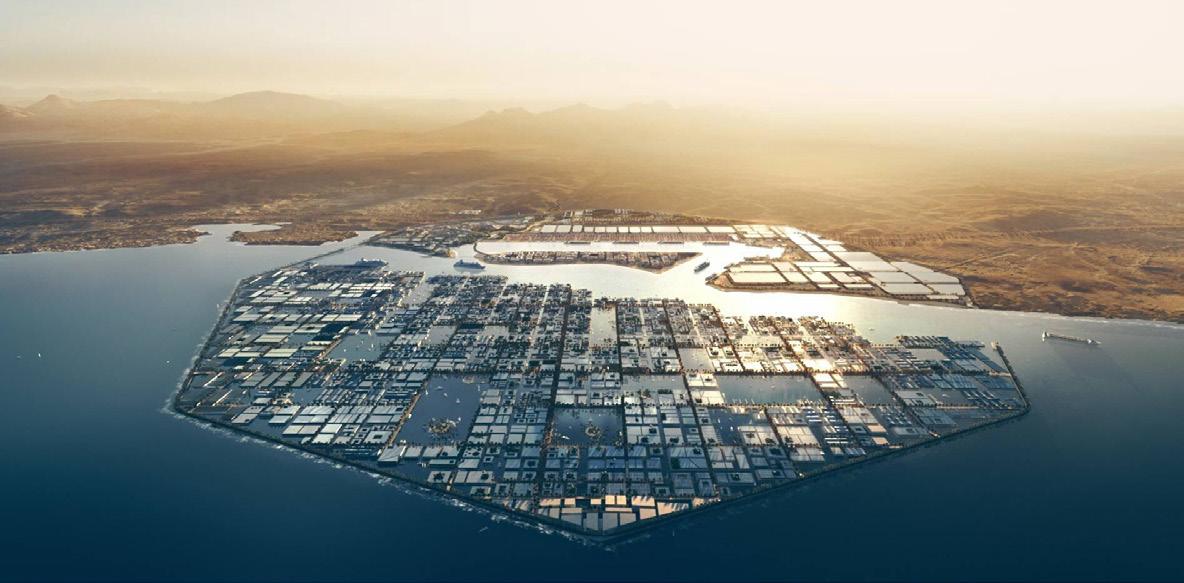
Headquaters: Dubai
CEO: Salah Habib
Founded: 2003
Faced with a tanking of the Dubai real estate sector in 2008, Diamond Developers refocused operations on sustainability with a vision to create a sustainable net-zero neighbourhood. The Sustainable City Dubai is Diamond’s first and flagship operational net-zero energy city and has become globally recognised as an example of successful, sustainable real estate development.
Considered experts in the creation and management of sustainable, intelligent, livework-and-thrive cities, Diamond is now building three more sustainable communities – Sharjah (UAE), Yiti (Oman) and Yas Island.
Partnered with Aldar, The Sustainable City Yas Island will be a low-emissions green community powered by clean renewable energy, including solar panels in parking structures, recycling facilities, community farming plots, and battery-charged bikes. The first phase was sold out within 24 hours.
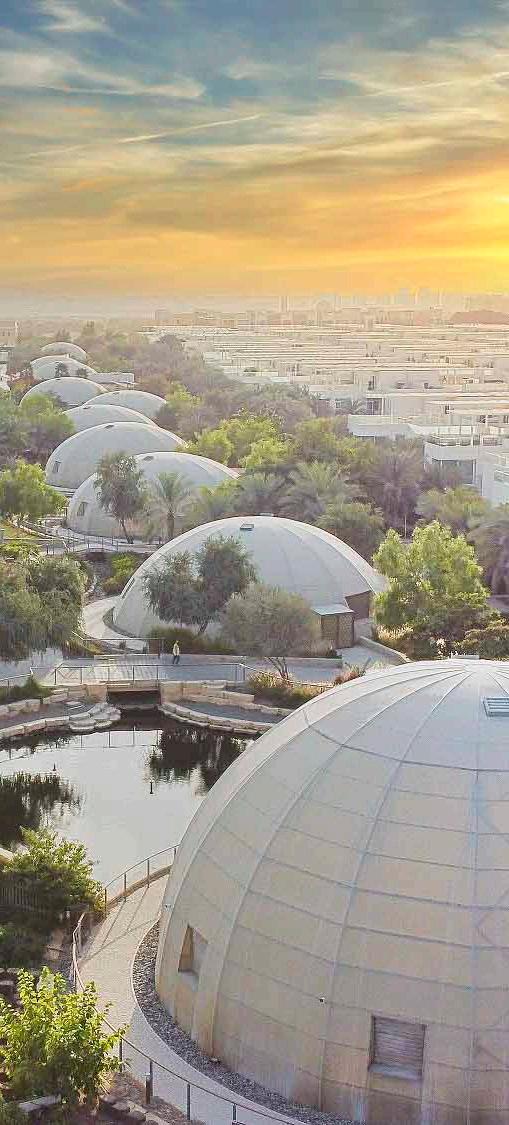
Headquaters: Abu Dhabi, UAE
Group CEO: Hana Al Rostamani
Founded: 2017
The UAE’s largest bank and the Middle East’s best bank for sustainable finance in 2023, according to Euromoney, FAB is a pioneer in driving growth in ESG finance –the first bank regionally to issue a green bond, FAB has now issued six.
FAB topped the sustainable bonds and loans bookrunner league table in the Middle East in 2022, with 13 transactions totalling US$1.64 billion and an 8.39% market share. The bank further facilitated more than US$9 billion worth of sustainable projects with more than half of its bond issuances in a green format.
This builds on the lender’s commitment to invest more than US$75 billion in sustainable initiatives by 2030. FAB is committed to helping its clients align their ESG strategy with their funding strategy.

Headquaters: Riyadh, KSA
CEO: John Pagano
Founded: 2018
As the visionary multi-project developer behind two of the world’s most ambitious regenerative tourism destinations – The Red Sea and Amaala – Saudibased Red Sea Global (RSG) is not just building a destination but laying the foundations for a new way of thinking about a more sustainable future.

Led by a zero-carbon strategy and the first development in the Middle East to secure LEED Cities Platinum certification, RSG is setting new standards for sustainability – protecting the natural habitat while taking steps to enhance it. The developer has pledged to achieve a 30% net conservation benefit by 2040, and is farming corals and planting mangrove trees.
Powered by 100% renewable energy, the 10,000sqm Red Sea site will generate zero waste to landfill and feature Saudi’s first carbonneutral electric buses.
Headquaters: Dubai
CEO: Mazen Chebaklo
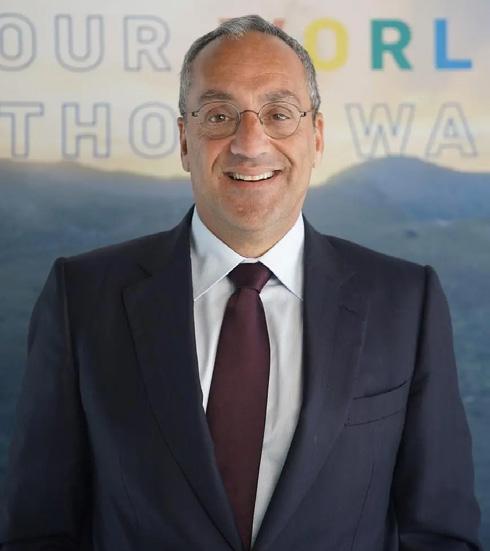
Founded: 1964
As the leading end-to-end waste management, treatment and recycling company in the emerging world, with 60,000 clients across MEA and India, Averda has been keeping cities and the environment clean for 30+ years.

Long-time advocates of the circular economy, Averda is on a mission to treat, recover and recycle over 80% of its waste using sustainable solutions. In partnership with WasteFuel, the company is developing the first commercial-scale municipal waste to renewable methanol plant regionally, turning unrecyclable waste into lowcarbon fuel to help shipping companies achieve up to 90% CO2 emission reductions.
Operationally, Averda has employed a route optimisation solution, halved energy consumption at its South African plant, and introduced an Environment Management system to monitor, benchmark, and set targets.
Headquaters: Abu Dhabi
CEO: Mohamed Jameel Al Ramahi
Founded: 2006
Throughout its 17-year history, Masdar has proven to be a pioneering force for sustainable change, driving the energy transition through investment in a diverse portfolio, from solar power in Abu Dhabi to offshore wind in the UK.
Operational in more than 30 countries, Masdar is on track to become one of the world’s largest renewable energy firms by 2030. Having nearly doubled its clean energy capacity and CO2 displacement (10 million

tonnes in 2022) in just two years, it is now on track to grow clean energy capacity from above 20GW to 100GW and 1 million tonnes per year of green hydrogen production by 2030.
The company, which is wholly owned by the Abu Dhabi government’s investment arm Mubadala, is working with Beeah to launch the first commercial scale waste-to-energy project regionally; working on the world’s largest single-site solar power plant in Al Dhafra and Africa’s biggest wind farm in Egypt; and constructing a blueprint for future cities.


Masdar City is a US$22 billion ecoproject that is fast becoming home to one of the Middle East’s largest clusters of highperformance buildings, including Siemens’ regional HQ.
Having recently developed a Green Finance Framework to guide all future financing activities, Masdar plans to become an issuer of Green Bonds in the debt capital markets.

MASDAR IS STARTING A NEW CHAPTER
Developing the first certified global standard for recycling credits


Headquaters: Sharjah, UAE

CEO: Khaled Al Huraimel

Founded: 2007
Established in 2007 to address the region’s environmental challenges, Beeah Group has since restructured into an investment holding group launching new business verticals to deliver sustainable, digital solutions that shape future cities.
Now considered the region’s leading sustainability pioneer, Beeah delivers smart solutions for waste collection, city cleaning (Beeah Tandeef), waste processing and material recovery (Beeah Recycling), clean, renewable power (Beeah Energy), green mobility (Beeah Transport), and awareness (Beeah Education).
At Tandeef, vehicles are all tracked, and the routing optimised by AI, while its commercial and industrial recycling facility has an AI-powered robot that segregates waste by type.
Beeah’s HQ in Sharjah, home to more than 10,000 employees, reflects its ambitions. As one of the smartest and most sustainable buildings regionally, it is equipped to operate at LEED Platinum standards and is 100% powered by renewable energy.
Along with Masdar, Beeah is building the UAE’s first waste-to-energy facility, set to divert more than 300,000 tons of non-recyclable waste from landfills annually and generate enough clean energy to power 30,000 homes. Beeah is also working with ISWA and Roland Berger to create a blockchain-powered global standard for waste recycling and building the nation’s first recycling plant for end-of-life EV batteries.
Innovation and education take centre stage too, thanks largely to Beeah’s environmental arm for consulting, research and innovation, and its sustainability academy, which reaches 700 schools and offers green careers.


 WRITTEN BY: SCOTT BIRCH
PRODUCED BY: STUART IRVING
WRITTEN BY: SCOTT BIRCH
PRODUCED BY: STUART IRVING
Mansour Al Blooshi, Head of Procurement at Abu Dhabi’s Mohamed bin Zayed University of Artificial Intelligence (MBZUAI), on delivering AI’s future talent
There are many routes to becoming a procurement leader, but Mansour Al Blooshi may have taken one of the more unusual career paths to the profession.
The world of procurement found Mansour almost by accident while he was working at Etihad Airways as a member of
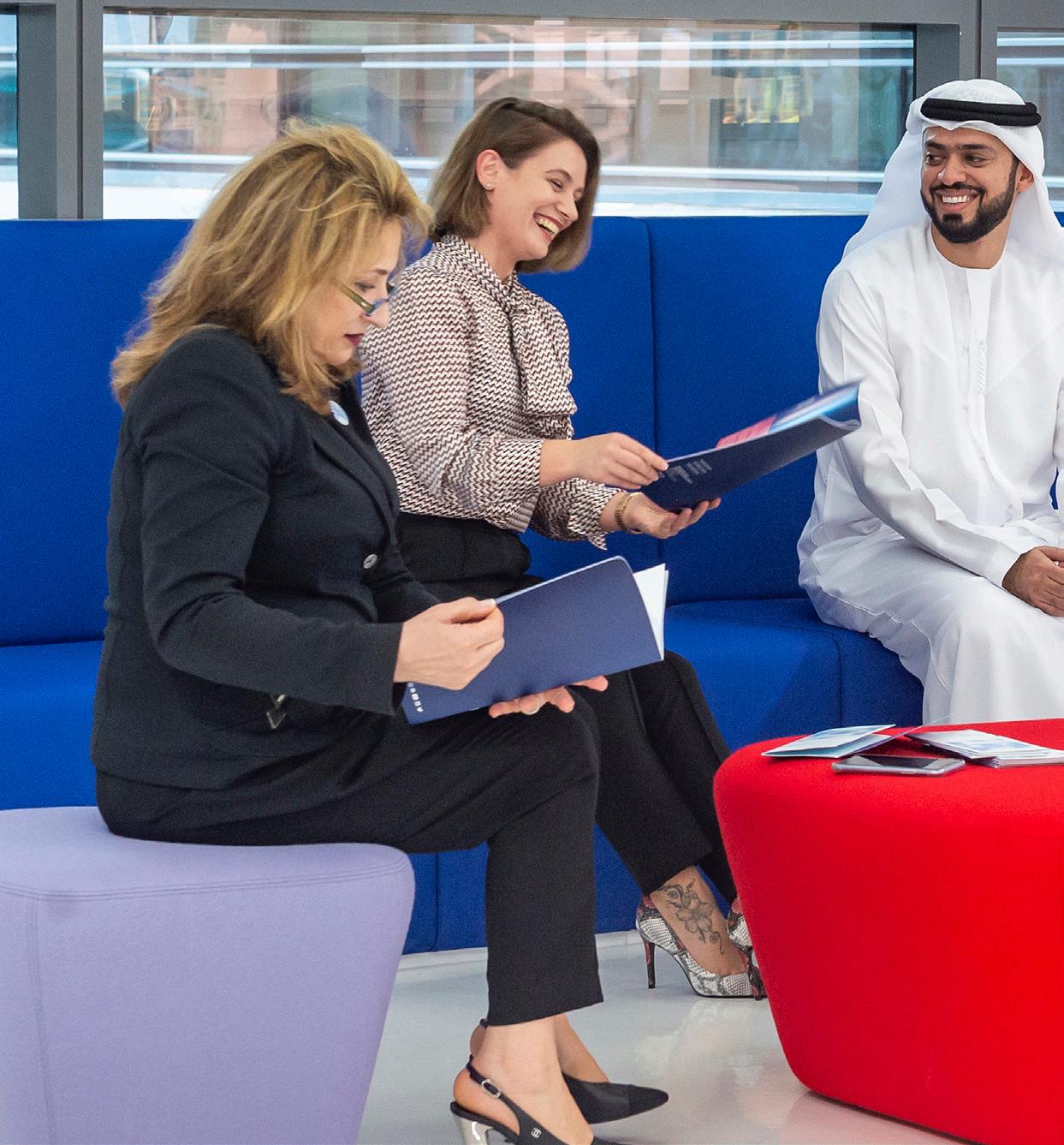
the airline’s renowned cabin crew. Before that, he was a professional football referee in the UAE league.
“Being a referee taught me three valuable lessons that I bring to procurement,” says Mansour, now Head of Procurement at Mohamed bin Zayed University of Artificial Intelligence (MBZUAI).

“Fairness, patience, and clear decisionmaking are crucial both on the football pitch and in procurement.
“No two days are the same in procurement. It is a routine job, but not a routine scenario.”
Few readers would argue with that statement, especially as the role of
procurement has evolved significantly in the decade that Mansour has been building his career and credentials. His rise has been even more impressive given he admits to never having heard the word ‘procurement’ until that chance discussion with an Etihad Airways’ manager.
Mansour explains that he learned quickly through hard work, following his mentor’s direction, and “never making the same mistake twice”.
He spent a couple of formative years in the Etihad Airways’ procurement team before moving to Masdar Institute (later merging with Khalifa University) in 2015 where he spent four years. He joined MBZUAI in 2020, commencing as Head of Procurement in August 2022.
Working at the world’s first graduate, research university dedicated to artificial intelligence (AI) presents its own unique challenges – not least because it was a startup pioneering high-level curriculum in computer science, computer vision, machine learning, natural language processing, and robotics.
Then there was the dreaded pandemic to contend with, too. But that did not
stop MBZUAI producing its first master’s graduates in December 2022 and again in June 2023. The Class of 2024 will see the university’s first Ph.D. students graduating.
MBZUAI was founded in 2019 and provides a purpose-built, high-tech, and eco-friendly campus. Currently, MBZUAI has 283 students from 41 countries. Its diversity makes it a unique and welcoming institution and benefits the work it undertakes.
From a procurement perspective, the task was even more significant given that MBZUAI funds every student via a full scholarship – covering course fees, accommodation, flights, and even providing a generous ‘stipend’ allowance.
“Being an AI university, our main suppliers are naturally in the IT field,” Mansour says.
“We started the IT infrastructure with Emircom, then we developed our High Performance Computing (HPC) data centre with Hewlett Packard Enterprise (HPE) and Alpha Data.”
Emircom and Alpha Data are both Abu Dhabi-based technology companies and Mansour says the university is keen to work with local, homegrown suppliers and partners where possible.
“Fairness, patience, and clear decision-making are crucial both on the football pitch and in procurement”
MANSOUR AL BLOOSHI HEAD OF PROCUREMENT, MBZUAI
MANSOUR AL BLOOSHI TITLE: HEAD OF PROCUREMENT COMPANY: MBZUAI
Mohamed bin Zayed University of Artificial Intelligence (MBZUAI) was established in 2019 as an open invitation to the world. Against a backdrop of global artificial intelligence (AI) talent shortages, the university is providing a worldleading pipeline of AI specialists to support the UAE’s innovation trajectory.

MBZUAI is supporting the UAE to find solutions to the world’s most pressing challenges with transformative research in areas such as healthcare, education, and climate.
According to CSRankings –MBZUAI ranks in the top 20 globally in AI, computer vision, machine learning, and natural language processing, ahead of many respected peer institutions.
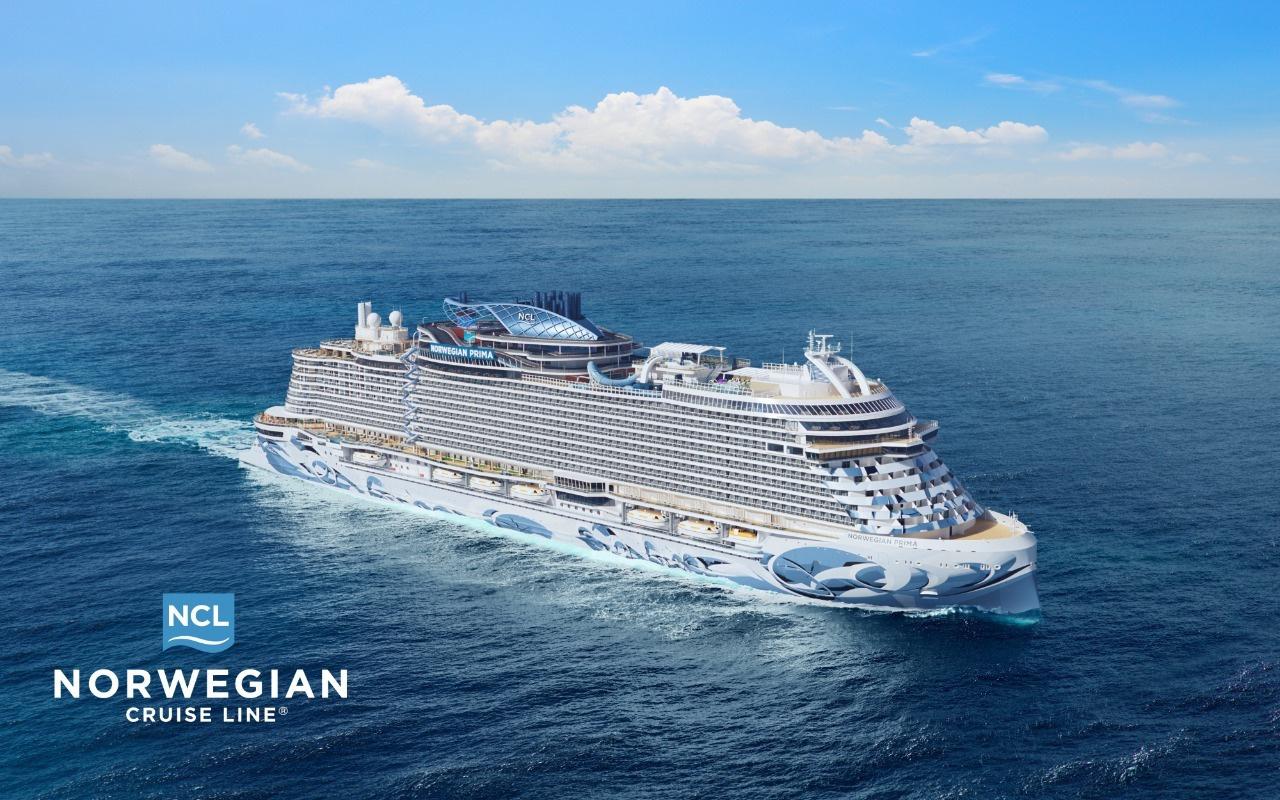


However, there is also a greater focus on sustainability when it comes to commercial evaluation of suppliers.
“Sustainability is one of the major goals we are trying to achieve within the Abu Dhabi Government, not only the university,” Mansour says.
“This is a long-term goal, but today if I make even a small change then in 10 years that might make a difference, and we may reach our 2050 goal.”
One of the first sustainability initiatives instigated by Mansour was the removal of plastic water bottles. He then set about creating a sustainability policy for
procurement, setting out what suppliers need to do to meet MBZUAI’s requirements.
“We made sustainability worth between five and 10 marks for our evaluation of suppliers, so that’s around 20 percent of the commercial evaluation,” Mansour explains.
“From IT to kitchen supplies, we look for products that are recyclable, sustainable, and do not impact the environment. We need to make sure that God-given resources are protected.”
Less than 12 months old when Mansour started at MBZUAI, he soon discovered the procurement team was processing by hand because they were ‘between’ digital systems.
More than 50 faculty members have been appointed to date; 56 percent of whom come to Abu Dhabi from the world’s top 100 AI institutions



Mansour admits that the system does have some challenges, and he works around that by creating some bespoke systems and processes to make sure he stays on top of closing open POs especially, so that they do not have a negative impact on his annual budget.
Of course, challenges are all part of the fun when it comes to procurement, and this variety is what appeals to Mansour.

“No two days are the same in procurement,” he states. “It is a routine job, but not a routine scenario. Educating people about procurement, helping them understand procurement, makes me feel good.”
That is a good thing, as Mansour’s team is expanding and becoming
MANSOUR AL BLOOSHI HEAD OF PROCUREMENT, MBZUAI
“Sustainability is one of the major goals we are trying to achieve within the Abu Dhabi Government, not only the university”
more specialised. The procurement department continues to go from strength to strength with its procurement strategy in place. They are supported in simultaneously handling contracts, vendor
management and quality assurance. Mansour adds that it has taken a lot of effort and resources, but those investments will pay dividends as the procurement team delivers greater efficiencies.
As well as providing master’s and Ph.D. degrees for the brightest computer science minds, MBZUAI also runs regular executive and professional training programs for leaders in both government and the private sector.
These courses provide leaders and managers with knowledge about AI and

“No two days are the same in procurement. It is a routine job, but not a routine scenario”
MANSOUR AL BLOOSHI HEAD OF PROCUREMENT, MBZUAI
how it can be best used to positively impact business and society. The university’s oneof-a-kind Executive Program (MEP) has successfully trained three cohorts consisting of more than 120 UAE leaders in AI so they can begin implementation in their home organisations. Through their exposure to elite, global AI researchers and heads of industry, private and public sector leaders in the UAE are growing into a powerful AI ecosystem — an essential ingredient for long-term success with the technology.

MBZUAI believes that leadership’s buy-in towards implementing AI is a critical factor to successful digital transformation

and adoption in industries across the UAE and the world.
Mansour is excited to be working for one of the global leaders in AI and believes the institution’s future is bright.
“We have all the resources when it comes to talent. We have brilliant ideas,” he says proudly.
“I believe that the UAE can be central to the future of AI both in the region and the world. MBZUAI is the paradise of AI.”






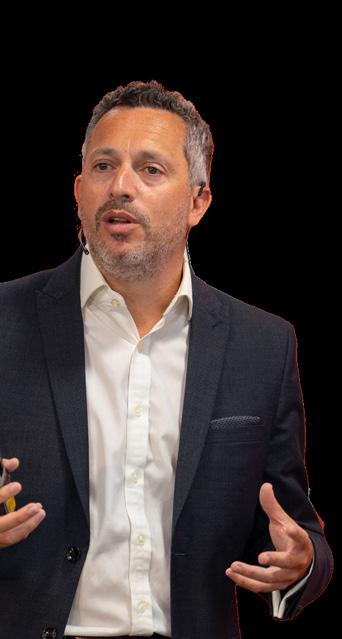
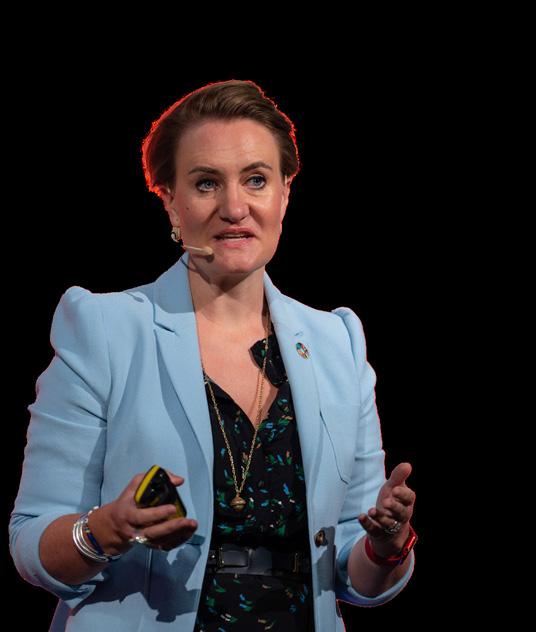














The concept of shareholder value is changing, but with IPOs in the Middle East soaring, how can CEOs meet stakeholder expectations and deliver?
WRITTEN BY: SCOTT BIRCHWhen considering the future of shareholder value, we have to look at the history. You have to go back to the dark economic times of the 1970s – a period of global stagnation. Open the pages of The New York Times and you’ll find an essay by a certain Milton Friedman titled ‘The Social Responsibility of Business is


to Increase its Profits’. Economist Friedman effectively said that an organisation should show no regard or responsibility for anything other than its shareholders.
As often happens with unpopular new concepts, it took a few years for other voices to echo Friedman’s doctrine, and it was not until the 1980s that the pursuit of
shareholder value at any cost became the new purpose for doing business.
And it worked. Shareholders made fortunes, and stock exchanges from New York to London to Tokyo all benefitted –right up to the 2008 financial crisis which pulled the plug on Gordon Gecko’s ‘greed is good’ mantra.
Or did it? Has the relentless pursuit of shareholder value at all costs gone out of fashion in the face of sustainability and societal pressures? And what difference does it make if you are a company based in Denver, Dusseldorf, Dubai or New Delhi?
One fact is certain – you cannot ignore the importance of shareholder value in the Middle East & Africa region.
According to the latest available data from the World Bank (which is admittedly a couple of years old but important for context), the market capitalisation of domestic listed companies in Saudi Arabia – the regional leader – is US$2.43 trillion. That is skewed, of course, by the 2019 listing of Saudi Aramco, which recently (July 2023) valued the company at just over US$2 trillion.
While Saudi’s total may be dwarfed by the likes of the US (US$40.72 trillion) and China (US$12.21 trillion), it is more than the rest of this region combined.
South African companies are valued at US$1.02 trillion, the UAE at US$294.83 billion (more on that to come), and Israel at US$262.906 billion. Even Egypt with its population of more than 100 million people only boasts domestic listed companies worth US$41.35 billion.
This highlights disparity around the world, with some countries having more of a focus on government- or family-owned large businesses, making the concept of shareholder value in those countries less significant.
But that is changing – and fast. With company listings booming on exchanges from Abu Dhabi to Alexandria, that
means more shareholders in the region and greater expectations on profits.
Abu Dhabi Securities Exchange (ADX), for example, is showing strong growth that makes a mockery of those old World Bank figures. The total market cap of ADX passed US$760 billion (July 2023) up from US$545 billion just a year earlier – a 40% hike fuelled by highprofile and high-demand IPOs like G42’s Presight AI. That US$496 million IPO was oversubscribed by an astonishing 136 times.
In March 2023, ADNOC Gas completed the largest-ever IPO on the ADX and the largest IPO this year at US$2.5 billion.
Middle East IPOs raised more than US$23 billion in 2022 from 48 listings. That is compared to just US$7.5 billion from 20 offerings in 2021.
Exceeding
is the single most important performance indicator to attracting and retaining professional
kWh, LLC
Craig Bouchard is a Founder and Executive Chairman of Ecolution kWh, LLC. Ecolution technology converts kinetic energy in moving vehicles into an electric micro-grid. Craig is a New York Times Best Selling author of ‘The Caterpillar Way. Lessons in Leadership, Growth and Shareholder Value’. He founded three companies that achieved roughly US$1 billion of revenue within 18 months. His companies completed 12 acquisitions of metals companies and he has won three hostile proxy contests. Craig was a finalist for the prestigious Platts S&P CEO of the Year award in the global metals industries in 2018.
Barbara Spitzer is Founder and Chief Executive Officer at Two Rivers Partners.

As an advisor to boards, CEOs, and business leaders, Barbara helps transform businesses. She leverages her skills across industries, solving complex problems, reimagining workforces, and galvanising organisations around corporate goals with an understanding of risk and regulatory pressures.
As the founder and CEO of Two Rivers Partners, Barbara provides solutions to evolve operating models, build human capital strategies, develop C-suites, cultivate cultures, and build change management strategies. Barbara also served as the board and CEO advisory lead at Accenture.

Phillip Lord, President of Oobit. Dubai-based Phillip has 25 years of experience in global capital markets, deep relationships with major Sovereign Wealth Funds, private equity, venture capital and hedge funds. He is experienced in dealing with entrepreneurs, understands funding capital, investor relationships, and exit needs, and is an expert in crypto markets.

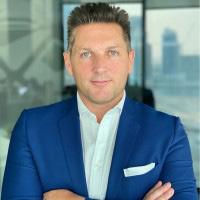

I truly believe we are witnessing the force of business used for positive change in the world
Barbara Spitzer
Founder and CEO, Two Rivers Partners
So with all of these listings, what do regional CEOs need to know about the changing nature of shareholder value?
Shareholder value as important today as ever “In emerging Markets, many large companies are family-controlled or statecontrolled. These companies may prioritise family or national interests over minority shareholders,” says Barbara Spitzer, Founder and Chief Executive Officer at Two Rivers Partners, and a former senior executive at Accenture.
“Corporate governance standards may be less developed, leading to potential issues with transparency and minority shareholder rights. However, as these countries integrate more with the global economy, there's an increasing trend towards better corporate governance and greater emphasis on shareholder value.”
When it comes to shareholder value, Craig Bouchard wrote the book –literally. His New York Times bestseller ‘The Caterpillar Way: Lessons in Leadership, Growth and Shareholder Value’ may have been written a decade ago, but “shareholder value will always be considered relevant, especially in our highly competitive investment arena,” the Founder and Executive Chairman of Ecolution kWh tells Business Chief.
“Exceeding shareholder expectations is the single most important performance indicator to attracting and retaining professional investors.”
Spitzer adds that while shareholder value remains core, CEOs must balance it with other stakeholders' interests, including employees, customers, and the broader society.
“CEOs and boards are redefining shareholder value to include social and environmental; not as
separate concerns because there is no long-term shareholder value without caring about employees, customers, communities, and other stakeholders expect and need,” adds Spitzer.
Dubai-based Phillip Lord has 25 years of financial markets experience and is currently President of crypto payments platform Oobit. He has a more pragmatic approach to shareholder value.
“It’s always relevant, but when markets and stocks go down, shareholders have more impact with the management on their advice and demands,” he says.
“We have gone from ‘growth company mode’ to ‘profit company mode’. Companies need to focus on generating revenues, not just spending it for growth.”
Lord argues that geography does not matter, and that “everyone should be focused on building a great business” and says CEOs should “embrace AI, cut costs, grow the company, and generate sustainable profits”.
Bouchard says companies are adopting a more balanced approach, seeking to create value for all stakeholders rather than prioritising shareholders. While he says that shareholder value should absolutely still be the main focus for CEOs, he believes that most leaders are getting it wrong, and that there should be a greater focus on allocating capital correctly.
“Even in the Fortune 500, I give a grade of C to over half of the CEOs I’ve observed or studied,” declares Bouchard.

There are lots of financial, strategic, operational, governance and transformational levers COEs can use. As a human capital strategist, Spitzer says CEO skills are crucial. She says the non-technical shareholder value capabilities CEOs require are:
+ 360-degree view of strategy that includes both the normal
stuff (value drivers, markets, customers, competitors, products and services, financials, and risk) and the new stuff (human capital, environmental, societal, and governance)
+ Purpose-informed capital allocation and financial planning viewed that considers the impact investment decisions have on people and the planet, alongside profit
+ Ethical integrity and the ability to establish trust and credibility by exhibiting high standards and responsible leadership
+ Stakeholder engagement with a keen ability to listen, empathise, communicate, build relationships, and understand diverse perspectives
+ Adaptive leadership to navigate change, embrace innovation, drive transformation, and guide teams through uncertainty; being open to new ideas, willing to challenge the status
quo, and capable of making tough decisions
+ Understanding the ROI of diversity and inclusion and promoting a culture that values and respects differences
+ Continuous learning to stay on top of industry trends, regulatory changes, and best practices
“In addition, CEOs need fluency in cybersecurity, artificial intelligence, digital transformation, human capital management, and environmental, social, and governance (ESG), which present significant competitive, reputational, and financial threats,” adds Spitzer.
The reasons for continuing to pursue shareholder value are clear, but leaders also need to marry this with responsible business practices, otherwise they risk losing out to more agile and enlightened organisations.

“I truly believe we are witnessing the force of business used for positive change in the world,” says Spitzer.
“I believe that corporations are, and can be, drivers of the systemic change needed to not only create commerce, support capitalism, and build wealth, but to also make the world a more just, safe, healthy, and welcoming place.”
We have gone from growth company mode to profit company mode. Companies need to focus on generating revenues, not just spending it for growth
Phillip Lord President, Oobit


 WRITTEN BY: HELEN ADAMS
WRITTEN BY: HELEN ADAMS
King Saud Medical City (previously known as Shemaisi Hospital) is one of the largest public district general hospitals.
In 1956, it had a level one trauma centre in Riyadh and was one of the largest territory care centres in Saudi Arabia, with the capacity for 1,500 inpatients.
In 2020, the first digital operating theatre opened in Riyadh with a robotic surgery and in 2023 the hospital launched its first HIS system.

Today, King Saud Medical City is known for its emergency department and having the largest referral centre in Saudi Arabia for orthopaedic surgery and neurosurgery.
Rayed Althukhais is Director of Digital Excellence at King Saud Medical City.
“My responsibility within the in-house and offshore development as well as the integration between internal and external systems,” he explains. “I’m part of the CAP advisory report and the Technical Committee of Digital Transformation in King Saud Medical City.”
Althukhais is also acting as a Programme Director and Portfolio Manager, he is also overseeing the mobility and the business support programmes. He’s proud that the hospital has decided to modernise.
it had a level one trauma centre in Riyadh and was one of the largest territory care centres in Saudi Arabia, with the capacity for 1,500 inpatients
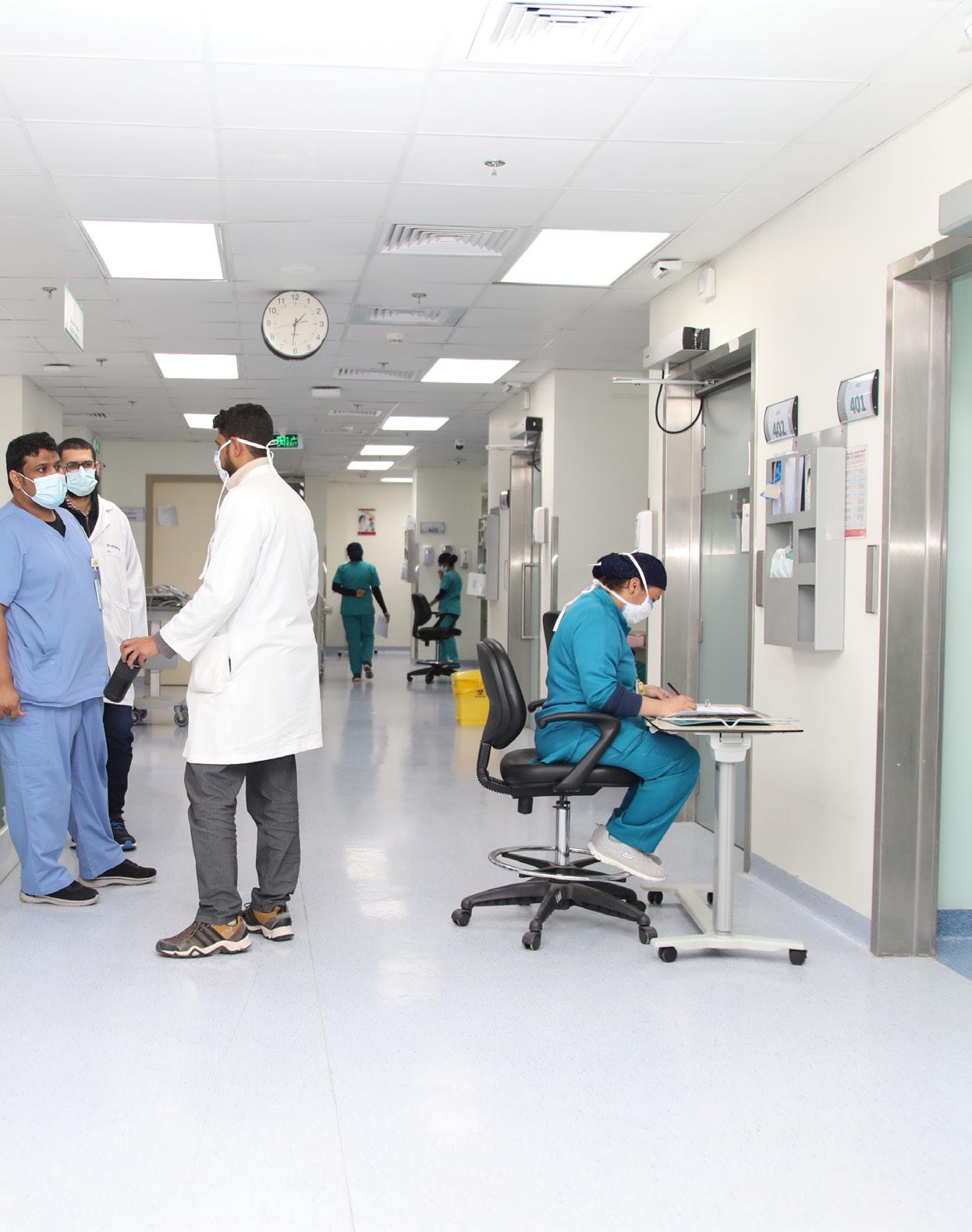
“We have a legacy system that needs to be in commission,” says Althukhais. “Our requirements, such as realtime recording of patient history and better patient health analysis, are not available.”
King Saud Medical City is utilising AI to support systems capable of assisting the healthcare provider, all with the aim of creating a better patient experience.
 AYMAN
AYMAN
ALROBY ASSOCIATE EXECUTIVE DIRECTOR OF SYSTEMS AND APPLICATIONS, KING SAUD MEDICAL CITY
“I’m part of the CAP advisory report and the Technical Committee of Digital Transformation in King Saud Medical City”
TITLE: ASSOCIATE EXECUTIVE DIRECTOR OF SYSTEMS AND APPLICATIONS
COMPANY: KING SAUD MEDICAL CITY
Mr. Alroby, a highly experienced IT leader with extensive expertise in the healthcare sector. In his current role as the Associate Executive Director of Systems and Application at KSMC, Mr. Alroby manages the digital, solutions, and applications that are essential for the organisation’s success.
Throughout his career, Mr. Alroby has held several key positions in the healthcare industry, including as a Consultant in Health Affairs at the Ministry of Health. He has also served as the Head of IT-PMO and Head of Analytics at King Saud Medical City, IT Director at King Saud Medical City, and eHealth Center Director.

Mr. Alroby’s expertise in IT strategy, planning, and implementation has led to a proven track record of success in improving healthcare services and procedures. He is known for his dedication to innovation and his ability to leverage technology to drive positive change in the industry.
Overall, Mr. Alroby is a highly respected IT leader with a wealth of experience and a commitment to achieving excellence and innovation in healthcare. His contributions to the field have been significant, and he continues to drive positive change through his work.
IQVIA Hospital Information System is a comprehensive solution for streamlined patient administration and advanced clinical information. Empower your healthcare team with a standardized, evidence-based care environment, ensuring high-quality patient outcomes.

• Standardized Care Plans for nurses and physicians
• Clinical decision support integrated into the patient care
• Closed loop medication management system
• Integrated billing system
• Automated KPI Dashboards (Operational, financial, and clinical)
Contact us
Through automation and integration, IQVIA’s HIS solution has become a guiding light for care providers, empowering them with reduced efforts, enhanced decision-making, and seamless connectivity. As we strive for our 2030 vision, this agile platform stands as a reliable partner in our digital transformation journey, leading to improved services and greater patient satisfaction.
Ayman Alroby, Associate Executive Director of Systems and Applications King Saud Medical City
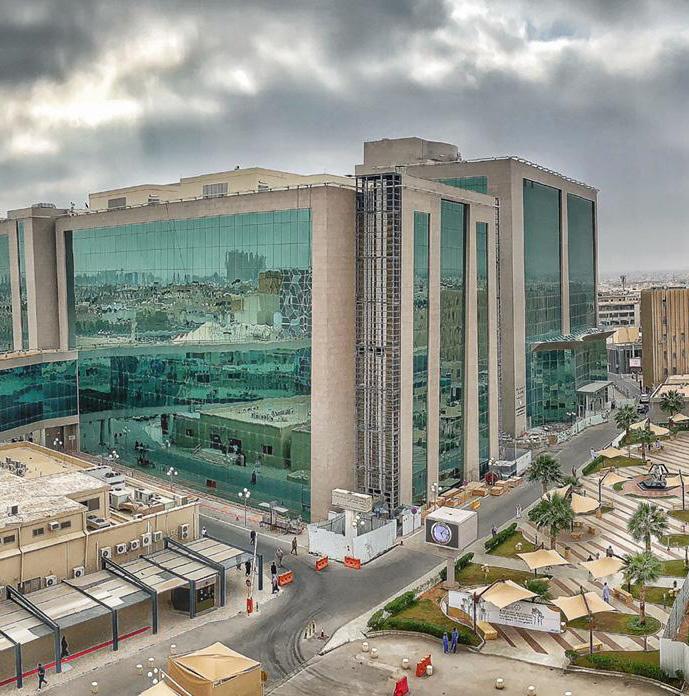

HIS System is an element of health informatics, used by King Saud Medical City. This focuses on the administrative needs of hospitals, including:
• System handling
• Data related to activity
• Healthcare providers and the healthcare organisation providing integration
OnBase is an enterprise content management platform from Highland Software, which allows the hospital to organise, manage and optimise content processes and automation.
“We are planning to utilise robotic processing, automation and generative AI into our field as much as possible”
AYMAN ALROBY ASSOCIATE EXECUTIVE DIRECTOR OF SYSTEMS AND APPLICATIONS, KING SAUD MEDICAL CITYRayed Altukhais, Director of Digital Excellence at KSMC, on KSMC’s AI Transformation.
TITLE: DIRECTOR OF DIGITAL EXCELLENT ADMINISTRATION
COMPANY: KING SAUD MEDICAL CITY
Mr. Altukhais, a highly accomplished IT professional and the current Director of Digital Excellence Administration at KSMC. With a strong background in IT strategy and planning, Mr. Altukhais has held several leadership positions throughout his career, including Head of IT Strategy and Planning and Head of Ancillary Systems at KSMC.
Mr. Altukhais is recognised for his expertise in system analysis, workflow design, and project leadership, making him

a valuable ally for organisations seeking to achieve their digital transformation goals. He is a visionary IT leader who is committed to driving excellence and innovation in the industry.
Overall, Mr. Altukhais is an exceptional IT professional whose contributions to the field cannot be overstated. His track record of success and leadership make him an ideal partner for any organisation seeking to stay ahead of the curve in today’s fastchanging digital landscape.
“IBM Maximo Manage is a fully integrated enterprise asset management (EAM) platform that uses advanced analytics tools and IoT data to improve operational availability, extend asset life cycles and optimise performance,” says Althukhais.
Pyxis is an automated medication dispensing system, which is supported by centralised medication management to HIS.
“Rapid is an AI application which helps with stroke cases, by using AI to analyse CT images. This helps the hospital to identify a stroke at an earlier stage, which allows the team to act and be ready to support a stroke patient.”
Over the next 12 months, King Saud Medical City has a big expansion plan in mind.

“We will improve the digital workplace, digital experience concentration and digital experience monitoring”
RAYED SAAD ALTUKHAIS DIRECTOR OF DIGITAL EXCELLENT ADMINISTRATION, KING SAUD MEDICAL CITY
The Global FinTech Awards 2024 will be celebrating the very best in Fintech with the following categories:
Digital Banking Award
–PayTech Award
–
Digital Currency Award
–
FinTech Award
–InsurTech Award
–
Sustainable FinTech
–
FinTech Technology Award

–
FinTech Consultancy Award
–
Future Leader Award
–
Executive of the Year Award
–
Project of the Year Award
–
Lifetime Achievement Award

As organisations across the region look to thrive in a highly disruptive and complex world, cultivating a peoplefirst culture is becoming a priority
 WRITTEN BY: KATE BIRCH
WRITTEN BY: KATE BIRCH



WE ARE SEEING MORE C-SUITE LEADERS ASK THE QUESTION ON HOW THEY CAN PERSONALLY ROLE-MODEL A PEOPLEFIRST CULTURE
 Neha Mohunta Principal, Heidrick & Struggles, Middle East
Neha Mohunta Principal, Heidrick & Struggles, Middle East

It’s been nearly two decades since legendary management consultant Peter Drucker coined the phrase, and never has it been more relevant.
“Your people are the ones carrying out the strategy, and if they are unhappy or marginalised, you are sure to fail,” says Dubaibased Edward Matti, Managing Director of CCM Consultancy.
Edward, who has been helping organisations undergo culture change for 25 years, has seen a surge in demand for culture transformation initiatives in the post-pandemic era, and especially in the Middle East – where the region is undergoing huge economic and digital transformation.
“Companies are rethinking the way they operate and the way they engage their teams. They want to ensure they have a connected and collaborative workforce. They want the company values to mean something to every employee and have the collective strength to achieve the objectives set out.”



And increasingly, they realise this cannot be achieved via transactional relationships with staff – you need a transformational, peoplefirst culture.
It’s not about putting people ahead of revenue and profits, Edward says, it’s about realising that people and profits go hand-inhand. Those very people are the reason a company achieves sales targets, provides great

customer services, retains loyal customers and attracts top talent.

Global leadership advisory Heidrick & Struggles is also seeing a sharp focus on shaping culture, with 82% of 500 CEOs surveyed in 2021 citing organisational culture as a priority
As Principal in the Dubai office, Neha Mohunta says more companies in the Middle East have started to focus on purpose and ensuring employees are ‘fulfilled’ – testament to the shift towards people-centric environments.
“We are witnessing a humbling convergence in this space. Unprecedented complexity in the work environment, geopolitical shifts, and the pandemic have increased complexity in the leader’s role. This is prompting the leader to lean in and reinforce a culture of peoplecentric leadership,” she says.
“We are seeing more C-suite leaders ask the question on how they can personally rolemodel a people-first culture to cascade this across organisations. They have started to realise that with collaboration, they are better
9.1%
Revenue growth rate (CAGR) in organisations that prioritise culture-shaping. This is more than double the rate of those that don’t, according to a 2021 Heidrick & Struggles study
able to solve some of the evolving challenges they face.”
Driving this shift is the region’s rapid diversification, with the national economic vision of numerous countries, from Abu Dhabi to Saudi, powering demand for foreign talent with new skills, valuable industry-specific expertise, and global exposure.
Saudi has seen its strongest increase in employment in almost five years. Even at C-suite level, global and cross-cultural exposure is highly sought-after with 43% of CEOs in Saudi boasting cross-border
IT’S NOT ABOUT PUTTING PEOPLE AHEAD OF PROFIT, IT’S ABOUT REALISING THAT PEOPLE AND PROFITS GO HAND-IN-HAND
Consultancy, Dubai
experience compared to the global average (36%), according to Heidrick & Struggles.
“Competing in the global arena for the best talent to deliver the ambitions of local organisations means that the culture needs to be attractive enough for high-performing talent to make the shift,” Neha says.


The ongoing talent crunch is driving continued culture change across Africa too.
Mark Watt, a Partner in Heidrick & Struggles’ Johannesburg office, says talent scarcity, especially digital skills, has been a persistent challenge across Africa, accelerated by the pandemic. “With borders opening and



Neha Mohunta, Principal, Heidrick & Struggles’ Dubai office Neha has 15+ years of experience as a culture transformation specialist, HR strategist, leadership development practitioner, and certified assessor. She works closely with C-suite clients to humanise workplace practices and deliver holistically on purpose.
Mark Watt, Partner in Heidrick & Struggles’ Johannesburg office Mark works exclusively on leadership consulting and advisory work, with a focus on Sub-Saharan Africa. He is especially interested in the sustainability of change and behaviour aligned to business results and performance and how teams activate and enhance their performance.
Edward Matti, Managing Partner, CCM Consultancy, Dubai Edward is an experienced leader with 25 years in leadership development and culture transformation.
Since setting up CCM Consultancy in Dubai in 2010, Edward has grown the award-winning firm to a diverse team of 30+ with offices in Dubai, Montreal, Toronto and New York.

In Africa, organisational cultures on the continent are guided by Ubuntu, an African philosophy that emphasises the interconnectedness of all people and the importance of empathy, compassion, and collaboration. “This is an approach that recognises that we are all part of a larger whole, and that our individual success is inseparable from the success of our team or community,” says Mark Watt, partner in Heidrick & Struggles’ Johannesburg office.
By adopting an Ubuntu-based approach, Mark says organisations can create a culture that is focused on the wellbeing and development of its people.

“The success of the organisation is directly linked to the success and satisfaction of

its people, highlighting the importance of building strong relationships, fostering open communication, and creating a sense of shared purpose and belonging. By doing so, organisations can create a workplace that is not only more productive and efficient, but also more fulfilling and meaningful.”
As such, Mark says he and his team are frequently asked to provide insights and support organisations to either ‘Africanise’ a global culture, or bring to life a local one if the company is wholly domiciled in Africa.
“Relationships and people are important in African culture and increasingly, local businesses are turning to a humanistic leadership and culture guided by Ubuntu.”
global travel resuming, the talent crunch is also exacerbated by business migration, with an outflow of talent to other business centres such as the Middle East.”

Unlike the Middle East, the business culture in Africa has been leaning towards a peoplefirst strategy for the last few decades, largely thanks to organisational culture on the continent being guided by Ubuntu – an African philosophy that emphasises the interconnectedness of all people and the importance of empathy, compassion and collaboration.

“Even prior to the pandemic, many corporate leaders recognised the significance of cultivating a flourishing organisational culture as a means to gain a competitive advantage – in attracting and retaining employees, fostering agility, and leading on innovation,” says Mark.
“A people-first culture will help retain the top talent necessary to overcome organisational inertia and drive growth.”
Studies have shown time and time again that organisations adopting a people-first culture see improvements in employee engagement, communication, wellbeing and empowerment, which in turn leads to increased productivity, higher levels of innovation, and ultimately better financial performance.


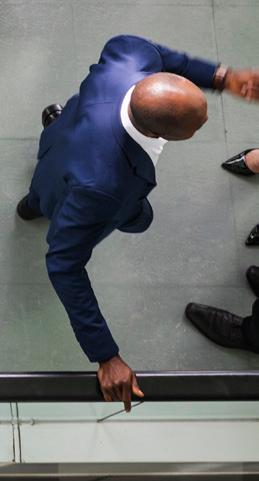
Organisations need to focus on developing inclusive leaders to ensure they stay ahead of a world that will increasingly lean on technology when shaping organisational culture.

According to Mark Watt, Partner in Heidrick & Struggles: “These leaders value individuality and seek out unique and differing perspectives, create a sense of belonging for all team members, and build a sense of deep purpose and engagement for their teams. These leaders create powerful environments that not only do right by everyone, but also promote better ideas, innovate toward greatness, and drive strong business performance.”
In other words, great leaders multiply value for their organisations and colleagues by building diverse and inclusive teams, whose output is more than the sum of their parts.
“When we start putting people first, those employees will in turn represent the organisations better, they will go out of their way to do a great job,” explains Edward.
“It’s not about putting people ahead of revenue and profits, it’s about realising that people and profits go hand-in-hand. Those very people are the reason a company achieves sales targets, provides great customer services, retains loyal customers and attracts top talent.”
And the numbers back this up. Leaders who prioritise culture-shaping outperform their counterparts, a 2021 Heidrick & Struggles study found, achieving a three-year compound annual growth rate (CAGR) in revenue more than double the rate of their peers (9.1% compared with 4.4%).
“These leaders identified culture as one of the top three factors influencing their companies’ financial outcomes and recognised the need to cultivate a culture that aligns with the overall strategic direction of the organisation,” says Mark.
Putting people first is not about sleep pods, games rooms, or fancy coffee, Edward tells Business Chief – it’s about listening to employee needs, understanding their motivators and how to engage with them more effectively, and empowering them to make
decisions on behalf of the company. It means prioritising employee growth and wellbeing, adds Neha, and involves putting in place practices, policies and benefits structured around driving inclusion and equity that are engineered to unleash employee potential. Being truly people-first means that every interaction or touchpoint is an opportunity to enable the team, Neha says. For instance, when considering learning and development, opportunities are identified and offered not only on immediate job impact, but on career aspirations and potential. While in performance management, feedback is given on time to ensure relevance and practical inputs instead of simply being regarded as a tick in the box.

WE ARE DRIVEN BY OUTCOMES, POWERED BY COLLABORATION, AND FUELLED BY COMPASSION
Al-Dabbagh Group’s homegrown approach to culture has propelled the family-owned conglomerate to being crowned ‘best place to work’ in Saudi – here’s how it works
WRITTEN BY: KATE BIRCHhile it’s easy to claim that people are your greatest asset, putting into practice what you preach is often a much more difficult and elusive task.
Not so for Saudi Arabia-based Al-Dabbagh Group (ADG), a diversified conglomerate that speaks to what it truly means to put people first.
“The secret to making ADG a great place to work is the holistic approach we take when it comes to our colleagues’ wellbeing,” says Hayfa Abu-Zabibah, Chief Omnipreneurship Officer, People & Culture, at Al-Dabbagh Group.
“We are driven by outcomes, powered by collaboration, and fuelled by compassion.”
Not only has such an approach to culture proved successful in attracting and retaining the very best talent, but it has garnered the Saudi conglomerate top spot as the ‘best place to work’ among large companies in Saudi in 2023, according to Great place To Work, the global authority on workplace culture – and third-best in Bahrain and the UAE.

It’s an approach to company culture that is also entirely unique – coined, created and curated by His Excellency Amr Al Dabbagh, Chairman and CEO of Al-Dabbagh Group, a renowned businessman with 30 years of experience including eight years in the public sector.
Dedicated to bringing principled leadership to business, Amr is the driver behind the Group’s homegrown philosophy.
15,000
Number of employees
84
Number of companies
22
Number of countries where operational
Hayfa tells Business Chief how the Chairman and CEO formalised this unique ecosystem from lessons learned from his father, HE Sheikh Abdullah Al-Dabbagh – the former Agriculture Minister of Saudi Arabia and the founder of Al-Dabbagh Group.
While the principles, values and rules have been the modus operandi of ADG since its founding in 1962, it took on a more formalised approach with the 2016 publication of Amr’s Simon & Schuster-published book Omnipreneurship: An Organised Approach to Living a Life of Meaning.
Today, this unique approach governs each of the group’s strategic business portfolios
across food, housing, mobility, packaging, and retail, as well as its incubation portfolio, and is cascaded down to all 15,500 employees across 84 companies in 22 countries.
Omnipreneurship – an entrepreneurial approach for every aspect of life
Described as an ‘entrepreneurial approach for every aspect of life’, Omnipreneurship is a holistic and organised approach made up of three principles that are a source of balance, five values, which are the foundation of the ecosystem, and 10 golden rules – known as the accelerators. “Omnipreneurship is about reclaiming the characteristics of
entrepreneurship such as a willingness to take risks, passion for what you’re doing and an aptitude for creativity and thinking outside of the box… all under the umbrella of having a vision for the greater good.” says Hayfa, who has 24 years of experience in human capital and specialises in transformational and agile HR.
Hayfa explains how the three interlocking principles – Giving, Earning and Sustaining – form the basis of group operations and so, any business decision made at ADG takes into account impact on its communities (Giving) and the planet (Sustaining). While the five values – respect, integrity, teamwork, forward-
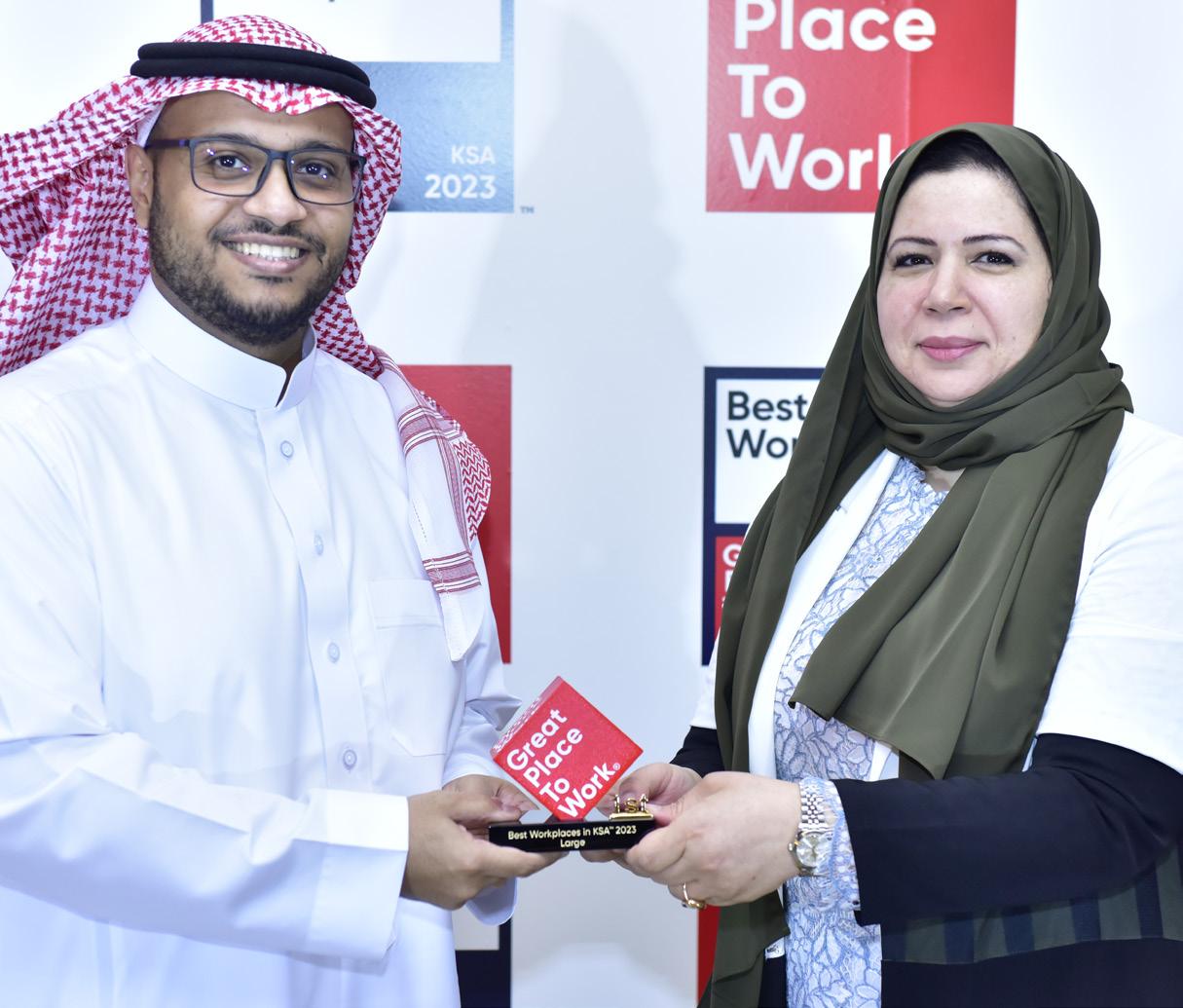
Among the most popular and successful holistic wellbeing programmes, OmniU offers a space where ADG colleagues and those from its associated businesses can learn and grow.
The Group’s LMS platform delivers more than 100 online courses from some of the world’s leading companies, innovators, and universities. While some topics are directly related to specific roles and responsibilities, others allow
learners to expand professional and personal horizons. Organised according to the ADG Competency Framework, a system linking professional skills to each element of the Omnipreneurship ecosystem, the programme supports colleagues with their development while also enabling ADG to actively work towards the targets it has set. Since implementation, career wellbeing scores of colleagues have jumped from 83% to 92%.

thinking, and passion – are the foundation upon which the group operates, and without these values the ecosystem collapses.
“Practicing these values ensures that our colleagues know they are coming to work every day to a place that is inclusive, respectful, and safe, and one that encourages collaboration toward our goals, ultimately inspiring ideas and out-of-the-box thinking.”
‘Colleagues’ is used throughout ADG, in place of ‘employees’, as language takes an important role in the sense of camaraderie that the Group strives to achieve, says Hayfa.
Omnipreneurship further encourages colleagues to develop a life plan, with goals broken down into smaller achievable steps across all areas of life, professional and personal. Everyone at ADG is required to have their own life plan that they are accountable for and that is tied to their bonus schemes.
“Having colleagues who lead fulfilled lives outside of the workplace leads to inspired
ideas within the workplace,” adds Hayfa, who always keeps the individual colleague experience top of mind when it comes to implementing any human capital strategies in any workplace setting,
And the Omnipreneurship approach is certainly proving successful.
“When we ask our colleagues what makes them stay on at ADG, their response points to the environment and to leadership. These two factors allow them to feel safe and empowered.”
Hayfa explains that by cascading the Omnipreneurship culture across verticals, ADG provides an unparalleled colleague experience, where both colleague wellbeing and diversity is considered.
“ADG’s leadership makes sure to set the tone from the top of the organisation by embodying our five values, walking the talk, and consistently working with a sense of integrity, respect, accessibility, and inclusion.
“Our Omnipreneurship Unit at ADG works to ensure it is not only understood, but that it is embedded and practiced day in and day out at each company in all our interactions and our operations.”
Book on Omnipreneurship by HE Amr Al Dabbagh, Chairman and CEO of Al-Dabbagh Group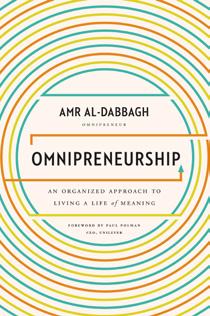

The Global Sustainability Awards 2024 will be celebrating the very best in Sustainability & ESG with the following categories:

Sustainability Strategy Award
–
ESG Program Award
–
Climate Change Award
–
Diversity & Inclusion Award
–Net Zero Award
–
Sustainable Supply Chain Award

–
Sustainable Technology Award
–
Sustainable Consultancy Award
–
Future Leader Award
–
Executive of the Year Award
–
Project of the Year Award
–
Lifetime Achievement Award


Sherif Tawfik, Microsoft’s regional Chief Sustainability Commercial Officer, shares his high hopes for meaningful climate action at COP28 in the UAE
WRITTEN BY: KATE BIRCHAs the world wakes up to global boiling, having experienced the hottest month on record for 120,000 years, the sheer scale of the climate crisis can paralyse any efforts to make a meaningful difference.
Size and complexity does not faze Sherif Tawfik, who instead sees these as an opportunity when it comes to making businesses – and the world – more sustainable.
In his role as Chief Sustainability Commercial Officer - Central, Southeast Europe, Middle East, and Africa at Microsoft – Tawfik has a wide remit spanning more than 100 countries on three continents.
He drives a vision aligned with the Microsoft mission to empower every person and every organisation with the technologies to build a more sustainable future, and where better than the region he represents.
“Sitting in a region that represents 55% of the world’s countries – close to 110 – you can
just imagine the possibilities,” says Tawfik, speaking from his base in the UAE which he has called home for 20 years.
“There is the Middle East, which is home to 50% of the world’s largest energy producers and multi-billion-dollar sovereign wealth funds now dedicated to renewable energy and decarbonisation.
“You have Africa, which by 2030 will be home to 40% of the world’s youth and also home to 50% of the world’s best solar resources. You have digital native nations in Southeast Europe and Central Europe, home to amazing tech talent and manufacturing hubs.
“I think this diversity on its own represents tremendous opportunities for change.”
Change is required, and fast, but there also needs to be a coherent and cohesive approach. When overseeing sustainability strategies for more than 100 countries, you can imagine the lack of consistency when it comes to standards and regulations.
The European Union, for instance, is a leader in ESG regulations, but some regions do not have the same level of maturity when it comes to seeing the economic value to investing in sustainable technologies.
Tawfik calls the many standards in circulation “sustainability alphabet soup” but welcomes the latest adoption of the Corporate Sustainability Reporting Directive (CSRD) – standards that cover the full range of environmental, social, and governance issues, including climate change, biodiversity and human rights. Importantly, they will also work alongside global standards to ease the need for multiple reporting for companies.
However, reaching a global consensus or standardising regulations is still a long way off, but Tawfik says recent data could change that.
“You cannot deny climate change any more,” he says. “When every summer is the hottest, and every winter the coldest, there is no escaping that climate change is real. I think there is consensus on what people are seeing – the trick is how countries, companies and people react to that in a unified way.”
Which brings us nicely to COP28 – the United Nations Climate Change Conference being hosted this year in the UAE. It’s fair to say that oil-producing countries in the Middle East have been a contributing factor to climate change, but many of those statecontrolled energy companies are already transitioning towards renewables. Financial strengths and a clear vision also mean many of these nations are leading the way and setting a global example.
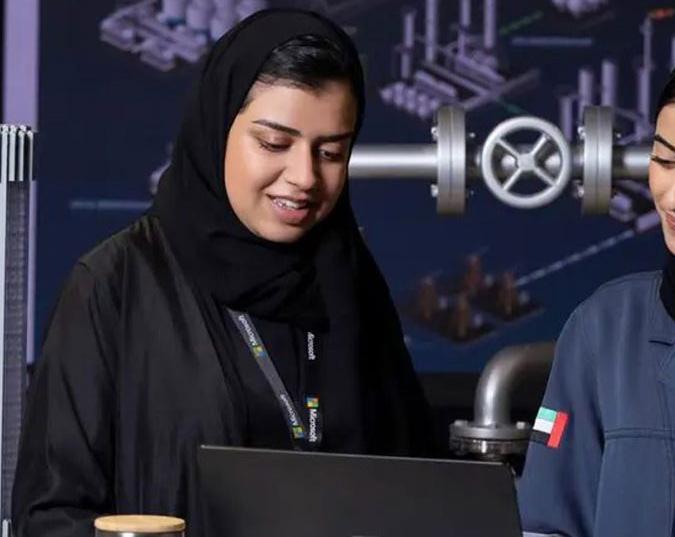
In many ways, the UAE hosting COP28 is a case of being in the right place at the right time. At the crossroads of East and West, and not part of the Western industrial establishment – the UAE has the opportunity to encourage conversation rather than talking down to developing and emerging nations.

COP President designate Dr Sultan Al Jaber promised to “champion an inclusive agenda that ramps up action on mitigation, encourages a just energy transition that leaves no one behind, ensures substantial, affordable climate finance is directed to the most vulnerable, accelerates funding for adaptation and builds out a robust funding facility to address loss and damage.”
The UAE was the first country in the region to sign the Paris Agreement, and the
first to announce a net zero by 2050 pledge. That puts the UAE level in line with the EU, the US and the UK, 10 years ahead of China and 20 ahead of India.
“We have seen multiple Middle Eastern countries announcing their net zero targets,” says Tawfik.
“The UAE announced a net zero pledge by 2050, Saudi Arabia 2060. Just last week, the national oil company for UAE – ADNOC – brought the deadline forward from its previous target for net zero from 2050 to 2045. So that’s a steep commitment.
“I think the translation of our political will to action is something that is worth mentioning in this region. We see multiple multi-billion sovereign wealth funds totally dedicated to renewable energy investments, specifically solar and wind.”
Tawfik also highlights sustainable-first megaprojects like NEOM in Saudi Arabia – a city growing from the sea, sands and mountains of the kingdom to be a new “net zero-by-design city 33 times the size of New York”.
Outside of the Middle East, Tawfik highlights South Africa as one to watch when
it comes to sustainability efforts, adding “we see multiple large corporations in South Africa announcing steep commitments”.
There is tangible progress within the region, Tawfik believes, because of the political will that is translated into actual progress.
Most of the previous discussions around climate action have been accused of being all talk no action. However, the UAE has a reputation for being a place that ‘gets things done’ no matter the challenge. Plus there is the fact that oil-producing countries in the region have a vested interest in change, and are diversifying their economies. The UAE already has – with the tourism and real estate boom of the last 20 years – and Saudi is investing heavily in new companies, cities and industries in a bid to future-proof its society.
unlike previous incarnations, with a closer collaboration between governments and the private sector.
“I think this year there will be much more representation from the private sector involved in decision making,” he says. “The UAE has always prided itself on leading the technology and innovation agenda and I think that’s something we will see at COP28 –how technology and innovation can help the climate change agenda, not only policy, not only regulation.”
It must be tough working for one of the world’s largest technology companies in a leading sustainability role. Public perception, at times, seems to be that technology will somehow, sometime, provide a silver bullet to the climate crisis.
Like carbon capture technologies being pioneered in Oman by startup 44.01 (named after the molecular mass of carbon dioxide). The company won the 2022 Earthshot Prize for its solution that involves mineralising CO2 – removing it from the atmosphere and turning it into rock. The technology is proven, but on a tiny scale – so small that it may not make a meaningful difference. The company hopes to mineralise a billion tonnes of CO2 by 2040, but emissions are already above 40 billion tonnes per year.
Tawfik believes the COP we see in the UAE in November and December will be READ THE FULL STORY
“In 2020, we announced our bold ambitions to be carbon negative across all scopes of emissions by 2030, to be water positive, and produce zero waste.

We will leverage our carbon negative status by 2030 to achieve another milestone by 2050, which is to erase all of our historical emissions since our inception as a company. So that’s a very steep commitment.
I think it’s pretty important that we focus on our own operations, being a hyperscaler as well as a company that actually sells products like Xbox and Surface and other devices. So, I think there is a very crisp focus on reducing our direct emissions in scope 1 and scope 2, as well as reducing our value chain emissions for scope 3.
We are also heavily investing in renewable energy. We have what we refer
to as the 100/100/0 programme, which is for 100% of our electricity consumption to be matched by zero carbon energy purchases 100% of the time by 2030.
We’re one of the largest corporate purchasers of renewable energy power purchase agreements. Last year, we purchased 13.5GW of carbon-free energy and were also one of the largest purchasers for carbon removal offsets.
We innovate how we operate our data centres, like Project Natick where we basically submerse a whole data centre underwater to leverage ocean cooling.
With the commitment that we put upon ourselves, we have to innovate for us to operate in a much more efficient way – leveraging renewable energy, decarbonising our operations end to end, even how we design, manufacture, package, and distribute our products is something that we focus on, because it impacts our scope 3 emissions.”
Video: Microsoft reveals findings from Project Natick
Experts from IBM Consulting EMEA and BCG Middle East share their views on the best generative AI playbook for business success in the Middle East and Africa
WRITTEN BY: KATE BIRCHThere is no escaping generative AI. It seems not a day goes by in the business world without another landmark iteration, playbook launch, or attention-grabbing concerns over the very existence of humanity.
Artificial Intelligence is nothing new, of course, but the launch of ChatGPT in November 2022 was a tipping point similar to the advent of public internet access.
“We often hear people talk about this being a ‘Netscape moment’. What Netscape did was take something that was in the hands of highly technical people – the worldwide web – and put it in the hands of the consumer, opening everyone up to a whole new world of possibilities,” says Giorgio Danesi,
EMEA Leaderfor Data and Technology
Transformation at IBM Consulting.
It is not just consumers and businesses that are wondering what the Brave New World of generative AI will bring – governments are also rightly concerned, but also embracing the possibilities, especially in the Middle East,
where Saudi Arabia and the UAE are leading the generative AI charge.
Leading chip manufacturer Nvidia –in partnership with Saudi’s AI agency – inaugurated a generative AI centre of excellence along with an academy of AI. Deloitte Middle East also launched a regional AI institute, with a focus on generative AI and machine learning.
One of the more enlightened approaches to this technology is from the Government of the UAE, which even launched a guide outlining ‘100 Practical Applications and Use Cases of Generative AI’.
“We have seen Artificial Intelligence play a significant role in shaping how humans interact with modern technologies and machines, and we can use it as a driver of future diverse and flexible innovations that keep up with rapid cultural and technological transformations and open up new horizons for innovation,” said His Excellency Omar Sultan Al Olama, UAE Minister of State for Artificial Intelligence, Digital Economy
 Rami Mourtada Partner & Director, Digital Transformation, Boston Consulting Group
Rami Mourtada Partner & Director, Digital Transformation, Boston Consulting Group
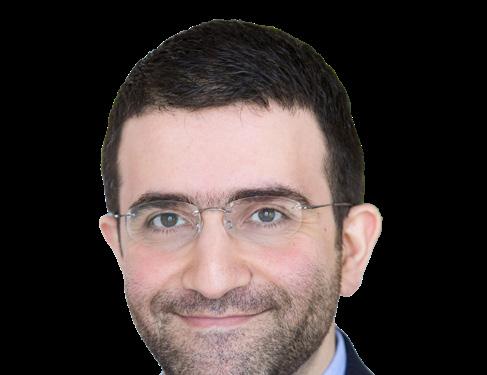

and Remote Work Applications in his introduction to that guide.
A recent report from Strategy& (part of PwC) says that the economic impact of GenAI in the GCC region could reach US$23.5 billion per year by 2030.
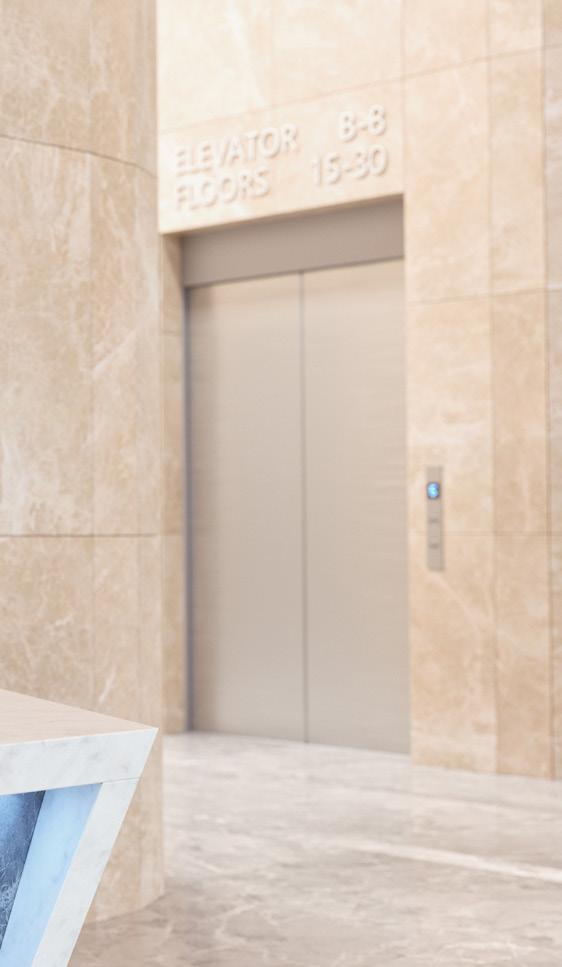
Strategy& says the biggest impact will be felt in Saudi Arabia (US$12.2 billion) and the UAE (US$5.3 billion). Then comes Qatar (US$2.6 billion), Kuwait (US$1.6 billion), Oman (US$1.3 billion, and Bahrain (US$0.6 billion).
Industries affected the most, they say, will be media and entertainment, banking and financial services, healthcare, and IT and telecommunications.
Clearly, it’s time to make smart business decisions.
As a business leader, you may be wondering how best to implement generative AI – how to cut through the noise and discern genuine benefits that you can tap into. You are not alone. There are so many new tools on the market, and so many developers looking to make a fast buck, that many in the C-suite are becoming overwhelmed.
Rami Mourtada is Partner & Director, Digital Transformation, at Boston Consulting Group (BCG) in the Middle East. He says that when implementing generative AI for business, there are several key considerations that any business needs to take into account.
“First, it is important to have a clear and compelling generative AI strategy in place,” says Mourtada. “This strategy should align with the business goals and objectives, as well as consider how generative AI can be integrated into existing processes and workflows.
“Additionally, businesses need to carefully evaluate the data requirements and availability for training the generative AI models. They should also consider the ethical and responsible use of generative AI, ensuring that appropriate governance structures are in place.”
Danesi seems to prefer swifter action, pointing to foundation models – reusable AI models that require minimal training – that are, and will, transform business models. These include chatbots, virtual assistants, content creation, and analysis.
He cites an example from the recent US Masters golf tournament where IBM used generative AI to create real-time, AI-generated commentary for any player.
This is similar to how UAE-based telecommunications company du used an AI avatar to commentate on matches and also predict – with incredible accuracy –the outcome of matches in a Padel tennis tournament in Dubai.
But AI is not all fun and games. From a business perspective, there are many possibilities and challenges.
Mourtada says that the potential benefits of implementing generative AI for businesses are significant. Generative AI can expand labour productivity by automating repetitive tasks and accelerating manual processes. It can personalise customer experiences by creating tailored content and recommendations.
Generative AI can also drive innovation and R&D through generative design, enabling the exploration of new possibilities and solutions. Furthermore, it can support the creation of new business models and improve decision-

The UAE Government’s excellent guide to generative AI highlights one major problem with the technology – language.
The report says that Arabic language is spoken by more than 420 million people, making it the fifth most spoken worldwide.
However, the limited availability of Arabic language resources and tools in software applications is a significant obstacle to programming development in the Arab world, as most software applications primarily support English and other foreign languages.
AI and technology companies from the region are helping bridge this vital language divide.
Technology Innovation Institute (TII), a global research centre and applied research pillar of Abu Dhabi’s Advanced Technology Research Council, launched NOOR, the world’s largest Arabic natural language processing (NLP) model to date.
Astra Tech (Astra), a leading consumer technology holding group in MENA, launched the first Arabic Chat GPT in the MEA region, in collaboration with the Mohamed bin Zayed University of Artificial Intelligence (MBZUAI). The technology is integrated into the BOTIM app.

In July, Egyptian grocery delivery app RabbitMart claimed to have created the world’s first Arabic speaking AI-powered shopping assistant.
The major rival to Microsoft-backed ChatGPT, Google’s Bard solution has now (13 July) launched in Arabic. Google says Bard can understand questions in 16 Arabic dialects including Egyptian, Saudi and Emirati.
By the time you tread this, expect further developments for Arabic language solutions – generative AI will not stand still.
We live in an ever-growing digital transformation, imposing more challenges on organizations of different sizes to keep pace with technological evolution as well as with the growing demands of citizens, employees, students and guests for seamless, faster and more secure connections.
RUCKUS builds world-class wired & wireless networks that deliver reliable user experience, our patented technologies and AI Engine helps you better drive the transformation whether in small or even in high-dense and tough environments.
Learn more
making by providing insights and analysis based on large datasets.
“While generative AI offers many benefits, there are also challenges that businesses need to address,” says Mourtada. “One of the main challenges is the availability and quality of training data. Generative AI models require large volumes of high-quality data to generate accurate and meaningful outputs.
Giorgio Danesi EMEA Leader for Data and Technology Transformation at IBM Consulting
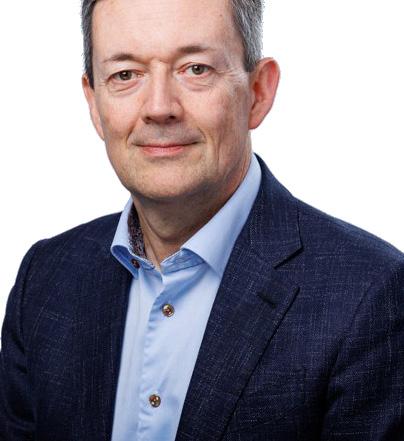
“Ensuring data privacy and security is another challenge, as businesses need to handle sensitive information appropriately. Additionally, the interpretability of generative AI outputs may pose challenges in certain industries where explainability is crucial, such as healthcare. Lastly, there may be a need for upskilling employees to effectively work with and manage generative AI systems.”
Before you pull out the cheque book or sign that purchase order, it’s worth taking a step back. Sure, you don’t want your business to get left behind when it comes to generative AI but with the technology and solutions evolving so quickly, it might be worth taking your time to get it right.
MUST HAVE A STRATEGY THAT CONNECTS THEIR AI INITIATIVES TO THE OPPORTUNITIES AND CHALLENGES THEY FACE IN THEIR BUSINESS

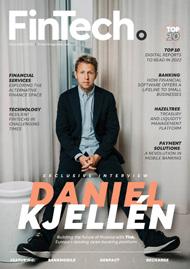
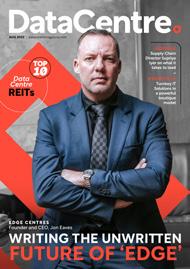


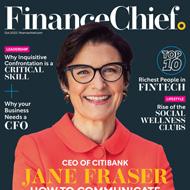




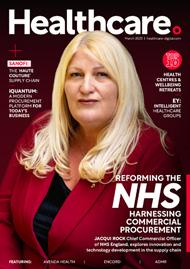



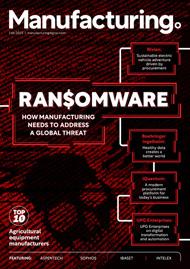





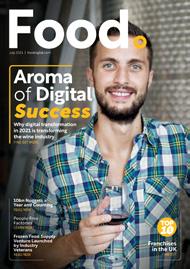

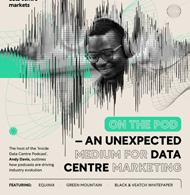
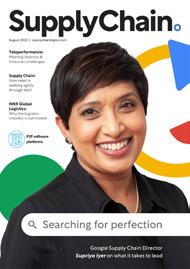


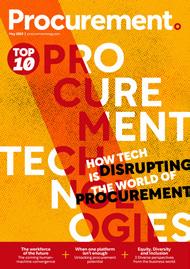




















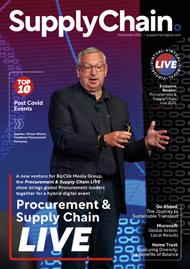



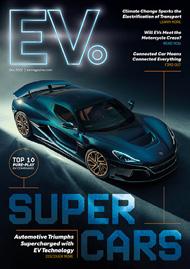






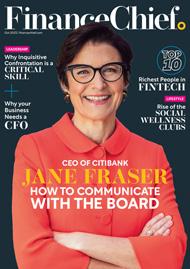
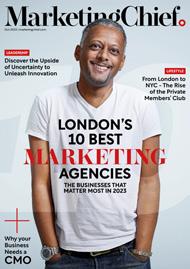



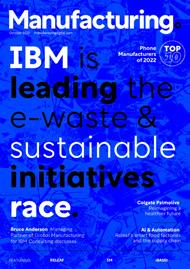
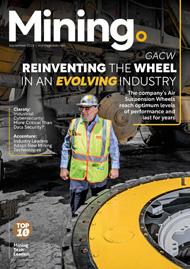

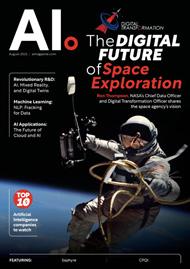






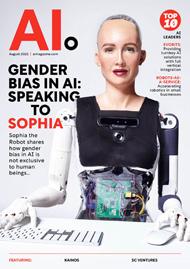

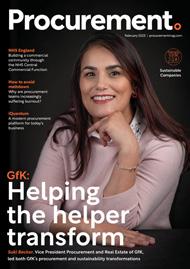



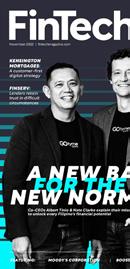


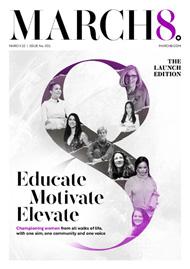




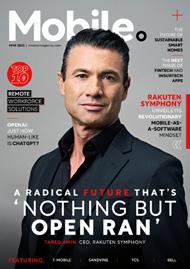
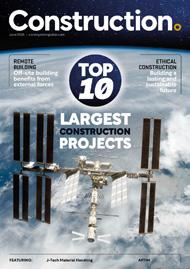

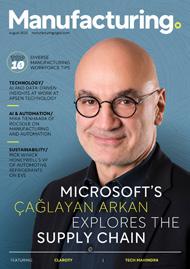
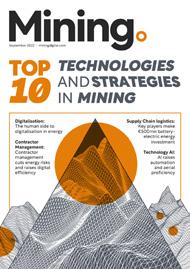









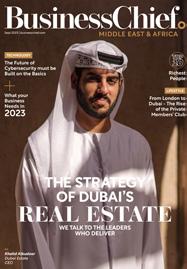








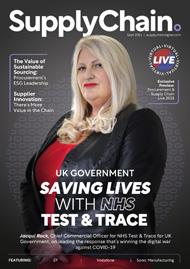
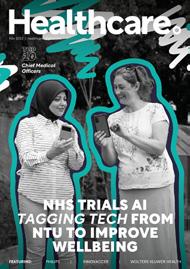








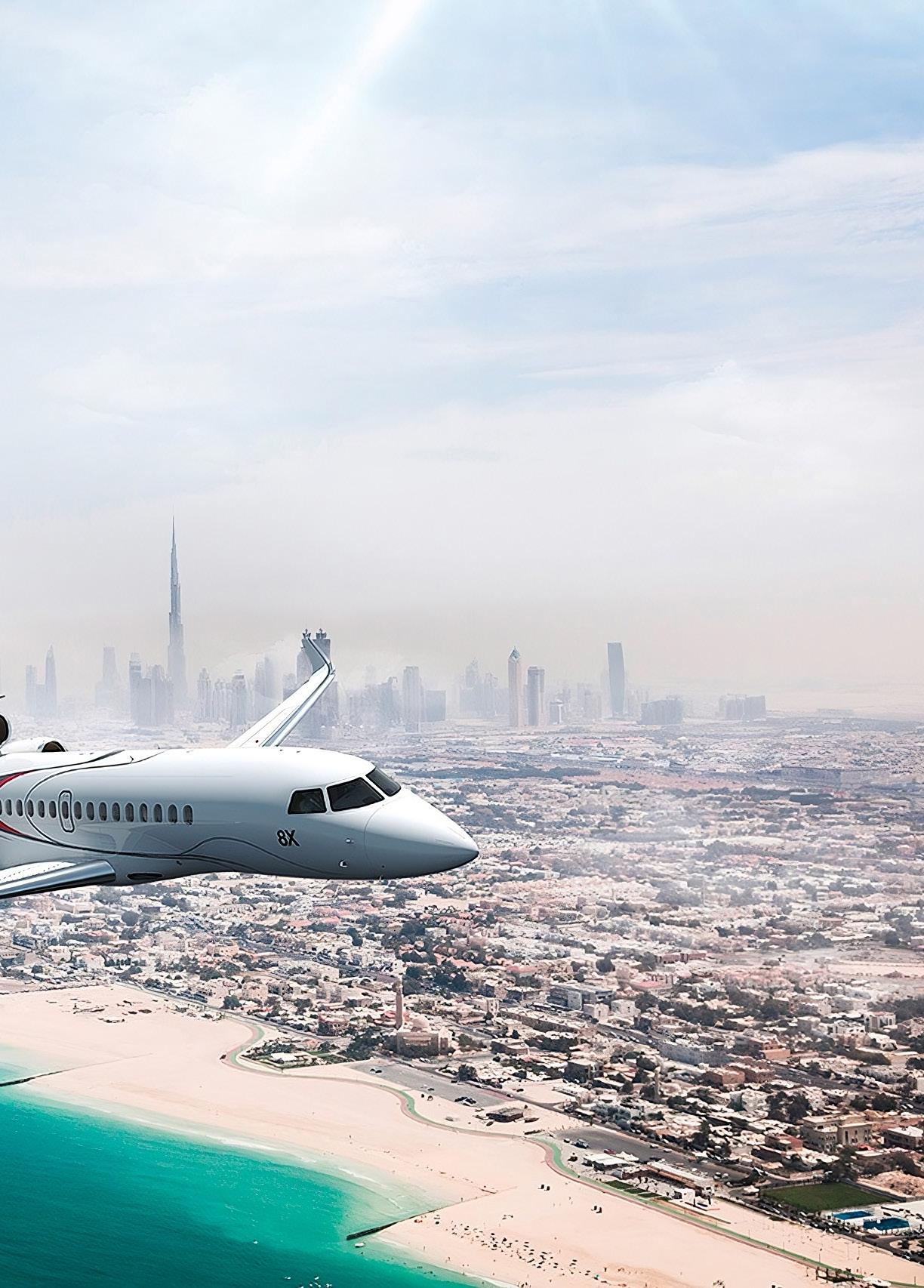
Few industries have to battle misconceptions and misplaced public uproar quite as much as business aviation.
Tabloid headlines scream about the costs of private jets when used by public officials, or the carbon footprint of what they see as a means of transport purely for the elite.
Earlier this year, Microsoft founder Bill Gates was pulled up on his use of private jets while in Kenya – working on solutions to eradicate malaria and improve food production. Actor and climate change activist Leonardo DiCaprio has also been slated for flying into the World Economic Forum in Davos by private jet.
The fact is, while there are celebrities and HNWIs that flaunt the pleasures of flying private, there are many more senior executives who rely on these aircraft as a ‘time machine’ – enabling them to make more vital meetings and cement stronger relationships than using any other form of transport.
With 300% carbon offsetting offered by some jet charter companies and a growing use of sustainable aviation fuel (SAF), those environmental concerns are also being tackled.
It’s not surprising to see lobbying groups from business aviation associations and aircraft manufacturers championing their industry, yet the facts put forward are compelling.
The No Plane No Gain initiative between the US-based National Business Aviation Association (NBAA) and General Aviation Manufacturers Association (GAMA), highlights the importance of business aviation in the US – by far the world’s largest market.
In June 2023, aircraft activity across the US was a staggering 20% higher than prepandemic levels in 2019. There are some 22,000 business aircraft in the US, with the next highest figure being just 1,600 in Brazil. In China, there are less than 500. The Middle East and Africa region combined accounts for a healthy 800 aircraft.
The US being the dominant and most mature market also sheds light on the key benefits of business aviation. No Plane No Gain says business aircraft can reach 5,000 US airports, while commercial airlines only reach 500. That means being able to fly closer to your final destination, saving time on ground transportation.
Companies needing to reach multiple destinations in a single day rely on business
EVEN BEFORE THE PANDEMIC, THE MIDDLE EAST AND NORTH AFRICA WAS THE FASTESTGROWING REGION IN BUSINESS AVIATION. WE HAVE DOUBLE-DIGIT GROWTH HERE
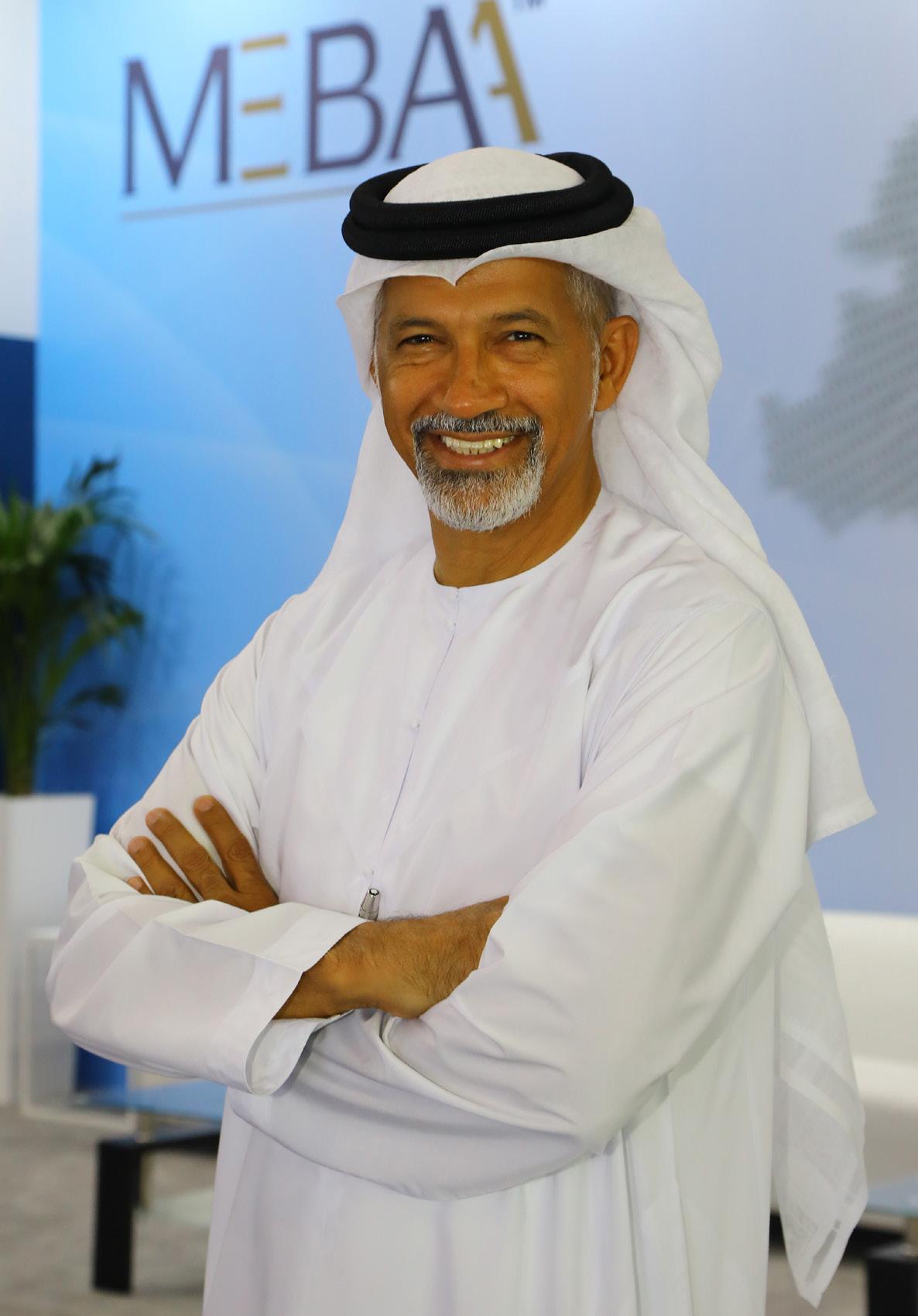
aviation, with 38% of trips (or missions) being to more than one destination. That would not be possible in most cases with scheduled flights.
Then there are safety and security implications. If you are using a business aircraft, executives can use the time for meetings and private discussions, with better connectivity too.

All of these factors considered, and with much of the Middle East and Africa having poor alternatives when it comes to transport infrastructure, it’s no surprise that business aviation is booming in the region – and that’s not just down to an influx of celebrities and ultra-wealthy tourists.
“Business aviation was associated with the High Net Worth Individual. That’s the old days,” says Ali Ahmed Alnaqbi, the Founding and Executive Chairman of the Middle East & North Africa Business Aviation Association (MEBAA) based in the United Arab Emirates.
“This perception has totally changed. We see more than 80% utilisation of business aviation for business purposes.”
Dubai will be the first city in the world to have flying taxis – or eVTOLs – whisking passengers across the city in fully-autonomous flight. This is not in 10 years time, the service will be fully operational by 2026.

So-called vertiports are already being designed with four locations planned in Downtown Dubai (near Burj Khalifa), Dubai Marina, Dubai International Airport, and Palm Jumeirah.
“They [the roads and transport authority, RTA] are doing testing by the end of this year – it’s happening,” says Alnaqbi. “That is why we’re saying look at our industry – we are really advancing technology.”

If you want to charter a jet, ExecuJet can supply any aircraft from its bases in Africa and the Middle East (as well as APAC, Europe, Latin America and the Caribbean). ExecuJet has private terminals, or FBOs, around the world, including two in Dubai and ones in Cape Town, Johannesburg and Lagos.

The award-winning Private VIP Terminal at the Al Maktoum
International Airport is the biggest in Dubai. Jetex also has FBOs in Oman, Morocco and Ivory Coast in the region. In April, Jetex announced a new FBO being built in Abu Dhabi at the established Al Bateen Executive Airport in the city.
The leading private aviation operator and services provider in Saudi Arabia was launched in 1999 in partnership with NetJets. The company has grown to manage and provide support to 19 aircraft, operating from its base in Riyadh 24 hours a day.
Alnaqbi is a seasoned industry professional with more than 32 years of experience in the aviation industry and sits on the Board of several reputed international aviation companies.
In 2007, he was elected to represent MEBAA in the International Business Aviation Council (IBAC), based in Canada. In 2020, he was the first Arab to be named Chairman of IBAC, and has recently been re-elected for another three years.
If anyone knows business aviation, it’s Alnaqbi.
Alnaqbi founded Royal Jet, one of the world’s leading VIP operators, and this led him to realise the misconceptions surrounding the industry, which led to him founding MEBAA.
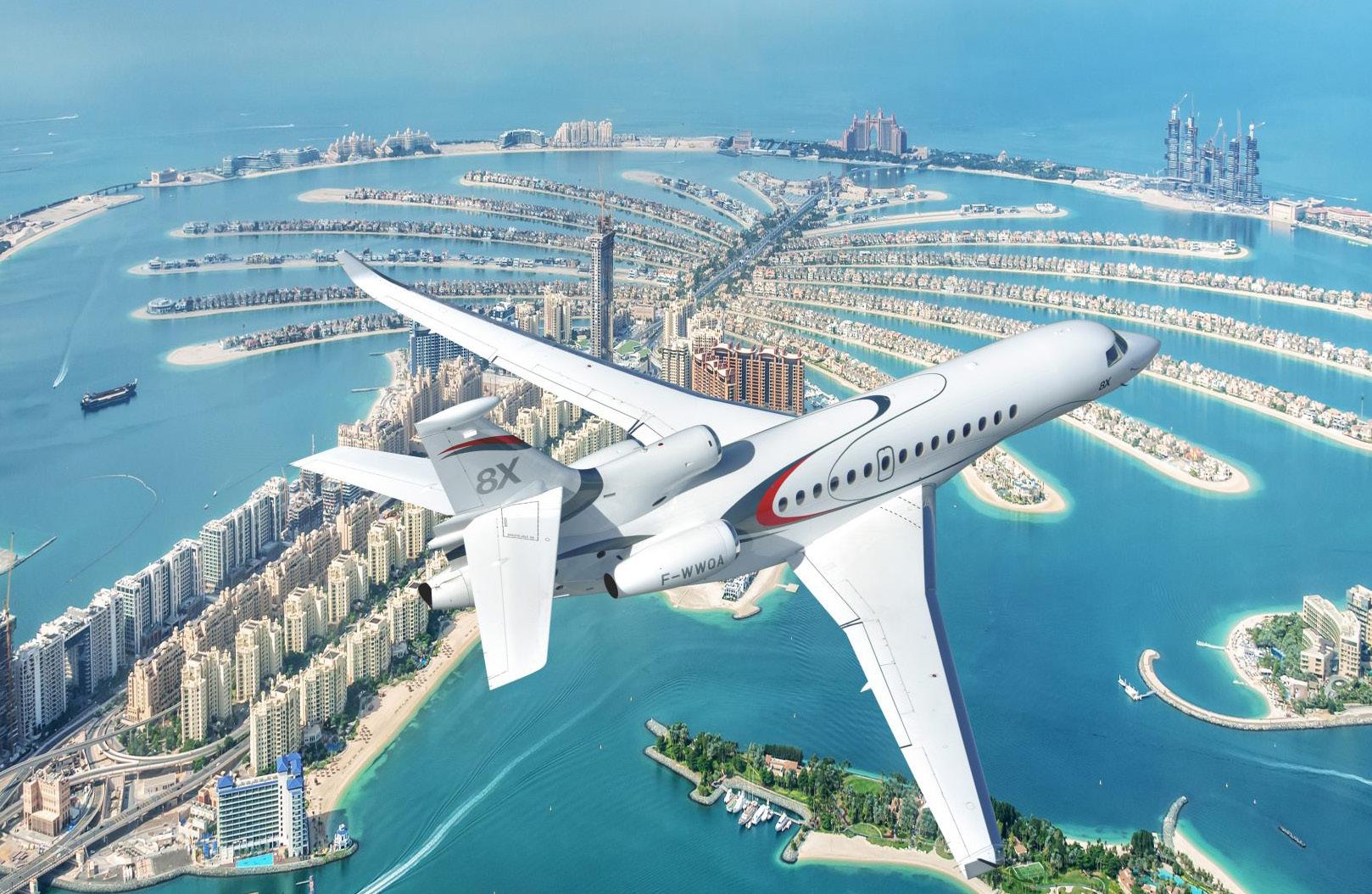

The next generation of entrepreneurs are ditching the traditional tech startup hubs like London, San Francisco and Berlin in favour of Dubai. Here’s why
 WRITTEN BY: KATE BIRCH
WRITTEN BY: KATE BIRCH
For decades, Dubai has attracted professionals from all over the world, largely thanks to lower taxes, less crime and year-round sunshine.
But in recent years, the city has become a magnet for overseas tech startups looking to scale – with founders and professionals from as far afield as London, San Francisco, Delhi, and Moscow relocating to the emirate.
And this is only likely to increase, according to Dubai-based tech entrepreneur and international investor, Dr David von Rosenvon Hoewei – best-known for founding Lottoland, a new-concept gaming and gambling service with 600+ workers and 18 million customers.
“The next generation of tech entrepreneurs will ditch the traditional tech startup hubs in Europe and North America in favour of Dubai,” says David – who is also the founder of VonRosen, the members-only, fully webbased fashion label that sold Apple’s Steve Jobs his iconic turtleneck sweaters.
This exodus of UK and European entrepreneurs to Dubai has already begun, he tells Business Chief, with North America soon to follow if the current opportunity imbalance continues.
David points to the economies of the traditional business hubs like London and San Francisco as stagnant and says their outdated policy frameworks are falling to keep up with the rate of innovation that is taking place in the tech world.
“The UK is still grappling with the fallout of Brexit, which has been hugely challenging for entrepreneurs and startups alike. It’s now harder to attract talent from Europe and restricted access to EU markets has damaged London’s appeal as a tech and finance hub.
“We saw that recently with Arm opting to float on the NYSE instead of a dual listing.”
But it’s not only the push factors from these markets leading to a tech exodus – but the magnetic pull of Dubai.
According to David, tech companies need three things to succeed – talent, capital, and business-friendly regulations – and Dubai has all three, in bucket-loads.
The emirate has consistently ranked among the top 20 globally for its business-friendly
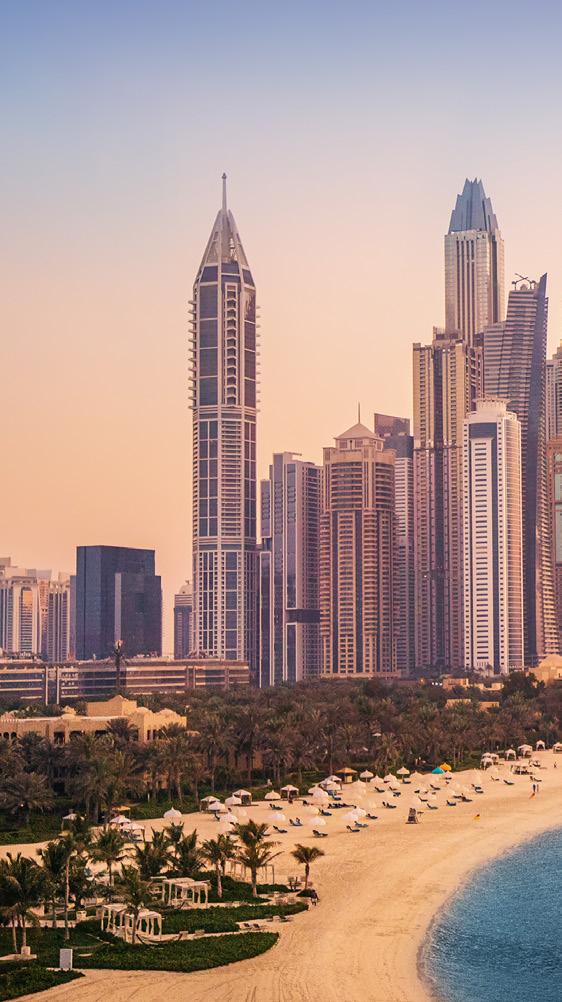
environment by the World Bank (you can start a business here in just four days following just 2-3 procedures) and placed first in the world for attracting Greenfield foreign direct investment over the last two years.
The city continues to attract big tech players, with Amazon, Google, Cisco, Oracle, Dell and IBM all using Dubai as their headquarters for the MENA region. And its population has soared by 86,607 (up 2.3%) in the last year alone with estimates it will likely surpass 4 million by 2026 with nearly threequarters under the age of 40.
Real estate is booming, with Dubai recently overtaking New York and Hong Kong to become the crowned the busiest $10-millionplus property market in the world, while the
contribution of non-oil sectors to GDP has reached record highs, and job growth is rising at the fastest pace in seven years.
Add to this, developing legislation and a continued rollout of initiatives and programmes to support and grow entrepreneurs and startups, and it’s easy to see why the city is proving such a pull.
Little surprise then that the UAE was crowned the world’s best country for entrepreneurs in 2022.
“The policies and initiatives implemented by Dubai’s authorities over the last five years, as well as the city’s geographical location between East and West, have made the city
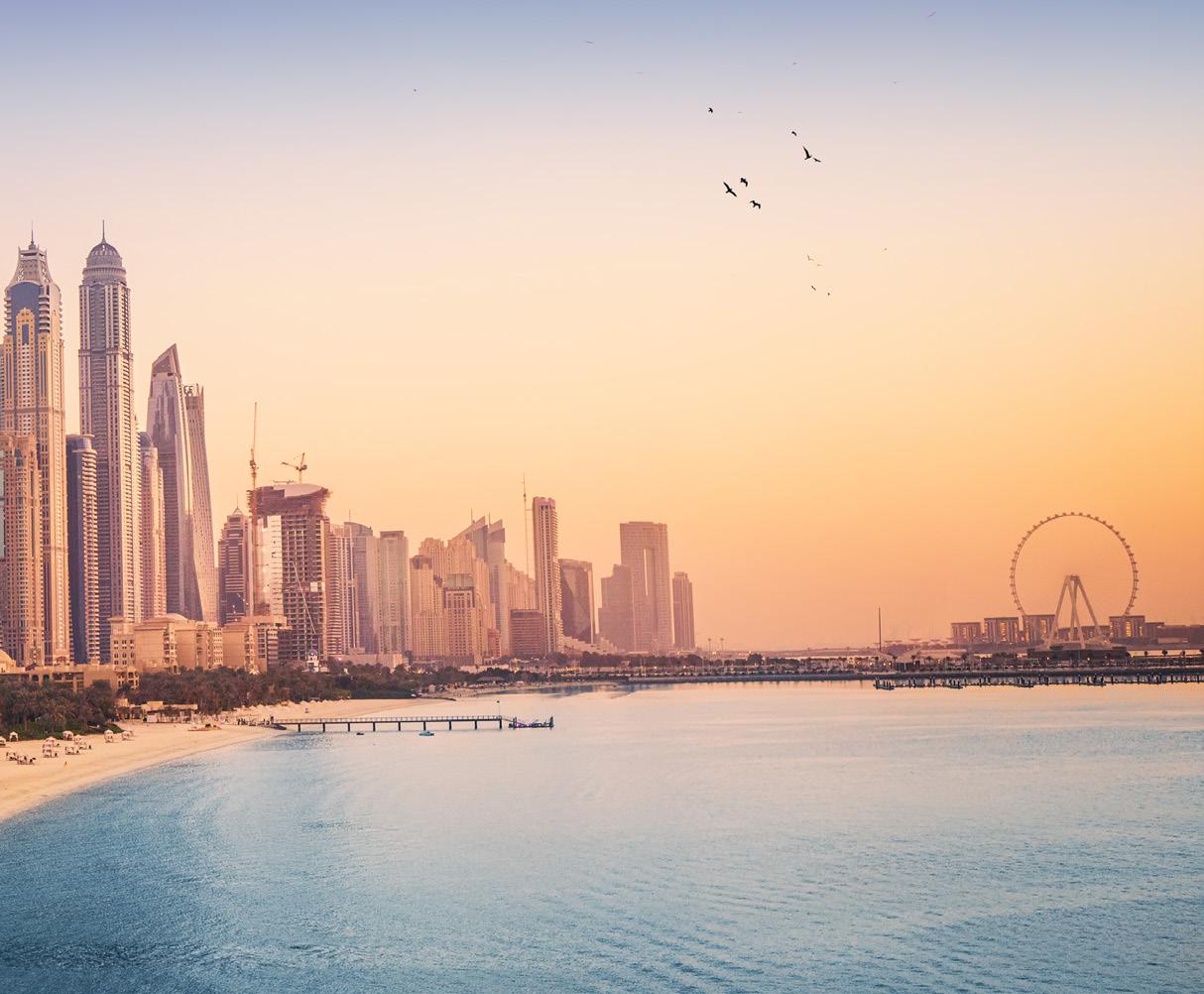
the best place in the world to start and grow a business, particularly in the tech sector.”

Something he argues is in stark contrast to the policy frameworks in Europe and North America, which are “simply too archaic and cumbersome”.
David insists that western countries can’t compete with Dubai’s agile approach to regulation and policy and with the sheer speed Dubai is moving.
“Dubai feels today how business hubs like San Francisco, Berlin, Singapore, and New York felt ten years ago.”
Take Dubai-headquartered Telegram, the social media company founded by tech mogul and self-made Russian billionaire, Pavel Durov.
“When the startup decided to move out of Russia, they first tried Berlin as their new base. But there were too many speed bumps in the process of relocating a business to Germany and it turned out to be more of a bureaucratic hassle than it was worth,” explains David.
Dubai’s focus on creating a regulatory environment conducive to growth has secured its status as an innovation hub for crypto.
The emirate has established an independent regulator for virtual assets, and introduced a new licensing regime, which has been instrumental in attracting top talent.
Among these, crypto’s richest man, Binance CEO Changpeng Zhao, who has relocated to Dubai bringing Binance HQ with him, and other global players like Kraken, Bybit, and Web3 Holdings.
“I expect to see significant growth for the crypto sector in Dubai, as large players seek to put down foundations in jurisdictions that have clear and predictable regulation and are open to collaborating with industry,” says Cavenwell Group MD, Andrew Horbury.
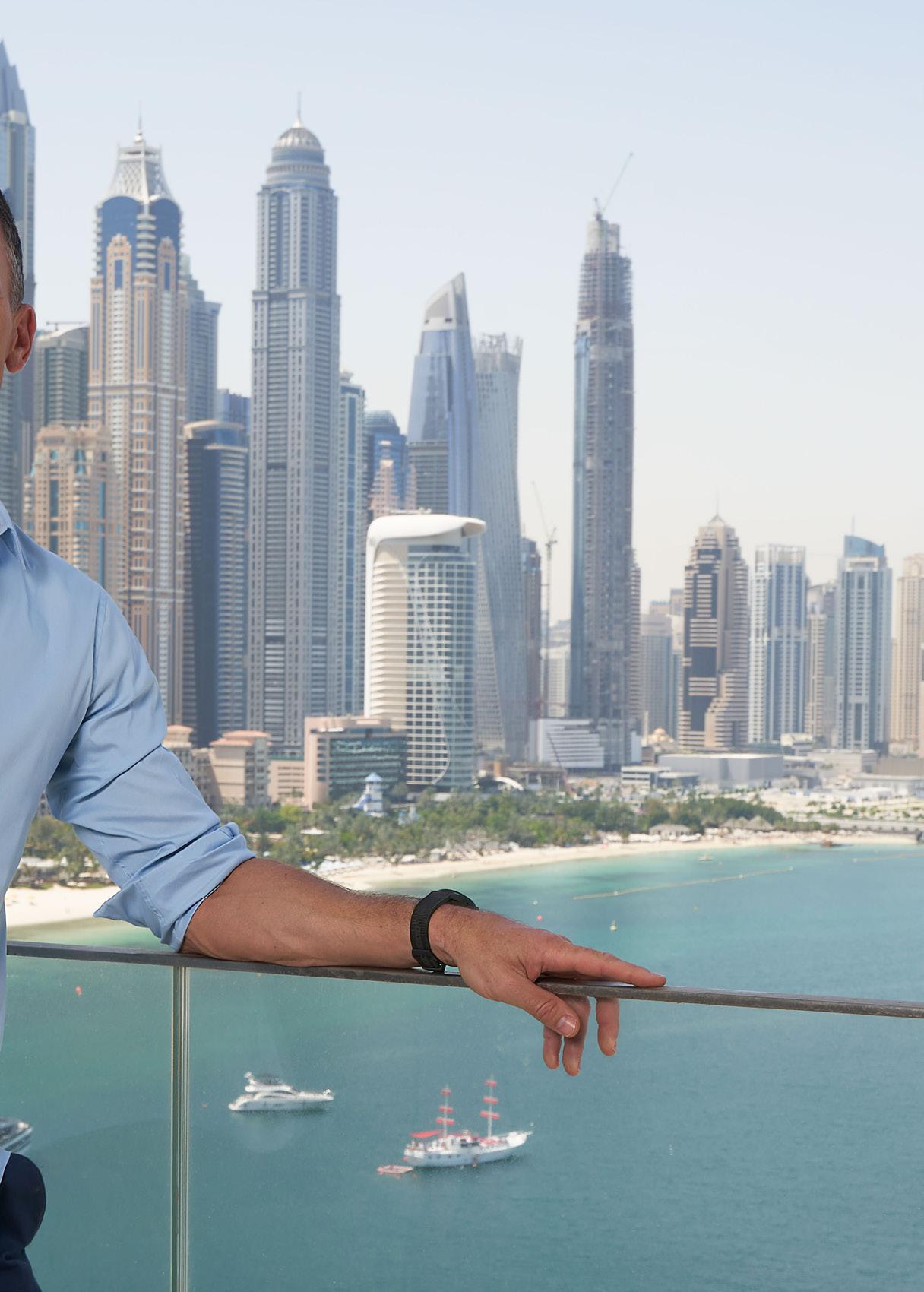
Tech entrepreneur Dr David von Rosenvon Hoewei believes Dubai could do the same with AI.
“Britain recently announced plans to host the first global AI regulation summit this autumn, and Rishi Sunak wants to discuss standardised global regulations. This will not happen. OpenAI Chief Sam Altman has already expressed his concerns about EU regulation, and the summit could be a lightning rod for AI companies to avoid Europe and the UK.”
David says that if the west comes down too hard on regulation, AI startups will set up in regulatory frameworks that welcome innovation and experimentation, like Dubai.
“We’ve already seen it happen with crypto. Gemini, founded by the Winklevoss brothers, recently announced plans to seek a UAE licence.”
Before long, Telegram moved to Dubai, “where they were welcomed with open arms” and now the app is worth an estimated US$30 billion business and is the first Middle Eastbased company to rank in the top 10 of the Global Unicorn Index 2023.
There are now around 4,000 startups in the UAE and the number of scaleups in Dubai surged 26% in 2022, with the emirate now home to 40% of scale-ups in the MENA region.
Plans are to scale further. Dubai is aiming to double its digital economy GDP contribution to 20% by 2031, and is looking to lure 300 digital startups by 2024, and support 30 companies in becoming global unicorns.
“It is only a matter of time before Dubai generates more unicorns than Silicon Valley or London,” David declares.
As the Managing Director of Cavenwell Group, a Dubai-based provider of corporate services for the digital sectors, Andrew Horbury says he is seeing a significant rise in entrepreneurs, startups and businesses looking to relocate to Dubai – and while many are below the age of 30, the demographic is broadening. Andrew recalls a conversation he had recently with a seasoned financial services guy with more than 30 years of experience in the city of London. “He was looking to relocate to Dubai and launch a startup in the investment space because he sees such a big opportunity here.”
People always assume the reason for relocation to Dubai is low tax, but it is far more than just that, adds Andrew. “As well as


being incredibly safe, there is a certain buzz on the ground in Dubai that is hard to convey into words – the city is inspiring. And startups, while often glamourised, are hard work, so the environment is incredibly important.”

The city’s strong ecosystem of tech firms and advisors in the city offers an intimate connectivity that is very rare in a city of this size, he says – a factor that makes partnerships and collaborations highly accessible. “Chances are you are only one or two connections away from a decision-maker here and that really helps get things done,” says Andrew.
David – who is currently focused on growing his own Web3 startup, Oceana Market, in Dubai – is also buoyed by the city’s dynamism and ‘let’s get things done’ attitude, not to mention its unparalleled lifestyle.
As well as tech, entrepreneurs, startups and businesses in the creative industries are also looking to Dubai, as the city doubles down on initiatives to pull in creatives from around the world. The Dubai Creative Economy Strategy is looking to double the number of Dubai-based creative companies to 15,000 by 2026 and has created an entire ecosystem to reach the target with support services, incentives, and business and legislative enablers.
“It’s a global melting point of talented individuals, which gives it a unique atmosphere. The people here are hungry to succeed, keen to network, and excited to collaborate. There’s an excited energy that doesn’t exist in other cities. It’s the new meeting place of the world, geographically, but also due to the influx of hardworking, business-minded people moving here from all over the globe.”

As a strong advocate for the bootstrapping method of founding and growing a business, David says Dubai offers an ideal breeding ground for entrepreneurs thanks to lower barriers to entry, and to profitability, for startups than in any other major business hub. This means they are less dependent on external funding and can prioritise organic growth while maintaining a controlling stake in their businesses.

With Middle East cities rising in the startup ecosystem ranks, we deliver the essential guide to doing business across three major hubs – including where to stay
WRITTEN BY: KATE BIRCHWhile Silicon Valley remains top for startups, cities in the Middle East and North Africa are rising, a recent report from Startup Genome finds.
Among the region’s five leading startup ecosystems, Tel Aviv, Dubai and Riyadh are riding high on entrepreneurial spirit, top talent, and business-friendly environments.
Which probably explains why all three cities are attracting more business travellers than ever before.
If you’re one of them, check out our essential guide to these three regional hubs –from where to stay to how to get around.

Staying in the city centre or near key business districts like Rothschild Boulevard or Sarona ensures easy access to meetings and networking. As well as the usual business suspects (Sheraton Tel Aviv and David Intercontinental, recognised by World Travel Awards 2022) there are plenty more boutique and interesting options.

Take The Norman, one of a growing number of luxury boutique hotels in the city. Situated near the Rothschild Boulevard and close to city landmarks, this old-world hotel screams exclusivity, from its critically acclaimed restaurants including a Japanesetapas-style affair to a rooftop lounge bar, wellness area, citrus garden, boardroom and private dining room.
Staying for an extended period? Check into one of six apartments at The Levee, which is located in the fashionable district of Neve Tzedek, and delivers a clutch of services including 24/7 concierge, Netflix subscription, laundry service, and complimentary breakfast.
 The Library Bar, The Norman Tel Avi
InterContinental David Tel Aviv
The Library Bar, The Norman Tel Avi
InterContinental David Tel Aviv
If you’re looking to fully embrace the Tel Avivian lifestyle, head to Port Said, an alwayspacked outdoor eaterie with an ever-changing menu helmed by iconic Israeli chef Eyal Shani. Or try HaBasta, a tiny laid-back affair in Carmel Market that promises original Israeli and Palestinian food, the freshest fish, and a wine list compiled by one of the country’s best sommeliers (Aviram Katz).
If you can only do one thing Stroll the city’s Low Line from Rothschild Boulevard down to the beach – it’s brimming with cafes, street art and life.
Doing business here is surprisingly casual, from attire to location, with many meetings held in cafes, largely thanks to the city’s vibrant coffee culture. Most Israelis work Sunday-Thursday (some Friday mornings) with Fridays, Saturdays off for Shabbat. Gett is the most popular taxi app though Uber and
Bubble are also available. When travelling into Ben Gurion Airport, the Fattal VP Private Terminal offers a hassle-free experience. Ranked as the sixth most expensive business trip destination in the world, Tel Aviv expects cash tips between 15-20%.


Power naps are embraced here, with many businesses, including Google, encouraging employees to take short power naps to enhance productivity and creativity.
Downtown Dubai and neighbouring Business Bay offer easy access to Dubai international finance Centre (DIFC), and Burj Khalifa. An ideal bleisure destination, DIFC delivers over 40 cafes and restaurants, art galleries, food markets, bespoke tailors and a handful of five-star hotels. Among these, the intimate Four Seasons Hotel DIFC is home to spacious suites with dazzling Dubai skyline views and roomy workspaces, the city’s best cigar lounge (Churchill Club) and The Penrose Lounge (a hub for business meetings).
Also here, the Waldorf Astoria DIFC –which delivers big on design, with décor inspired by TV series Mad Men – houses the multi-award-winning contemporary grill Bull & Bear, suites with floor-to-ceiling windows and dazzling views, a grooming suite, cigar lounge, and personal concierge for every suite. Fancy something more chilled (and creative)? Head to 25hours Hotel One Central, with its array of co-working spaces, lobby library, podcast recording room, rooftop pool and bar, and Indian restaurant. Alternatively, ME by Melia Dubai, a Zaha Hadid-designed hotel housed in the iconic Opus and surrounded by the skyscrapers of Business Bay, provides a Burj Khalifa view, trendy tapas bar, and personalised workouts.

There are so many, but Assiano at Atlantis, The Palm is not to be missed.



This underwater experience delivers stunning views of 65,000 marine animals and an award-winning degustation menu courtesy of Gregoire Berger, one of the UAE’s most innovative chefs. For authentic Emirati dishes in a courtyard setting, head to the original Arabian Tea House in the historic Al Bastakiya area.
If you can only do one thing Head to the Fahidi historic district and souq, then take a traditional abra ride across Dubai Creek to the Gold Souk.
The workweek here is Monday to Friday. Book the Marhaba Meet and Greet service at Dubai Airport for stress-free fasttracking through the airport. For taxi travel, download the Careem app.

Dubai offers plenty of coworking spaces, which can be booked by the day or week. Try Modern Working in the Opus building (DIFC), which offers private offices, a recording studio and events space. Or opt for WrkBay, which boasts meeting rooms, podcast studio, cafe and a sanctuary garden. Both can be booked by the day.
Among award-winning business hotels, the Courtyard by Marriott Riyadh Northern Ring Road in the business district is home to a business centre, three meeting rooms, a networking lounge and spacious suites with flexible workspaces. Also popular with business travellers, and a favourite of Cristiano Ronaldo, the Four Seasons Hotel Riyadh is located in the world’s third-tallest building, the iconic 99-floor Kingdom Centre, which is connected to a mall. Rooms come with ample desk space, a media hub, Nespresso coffee machines and stunning skyline vistas, while service is highly personalised. And they have a women-only floor.
Looking for something more casual and boutique, Al Mashreq Boutique Hotel delivers an exceptional location in downtown Riyadh and sits in stunning surroundings
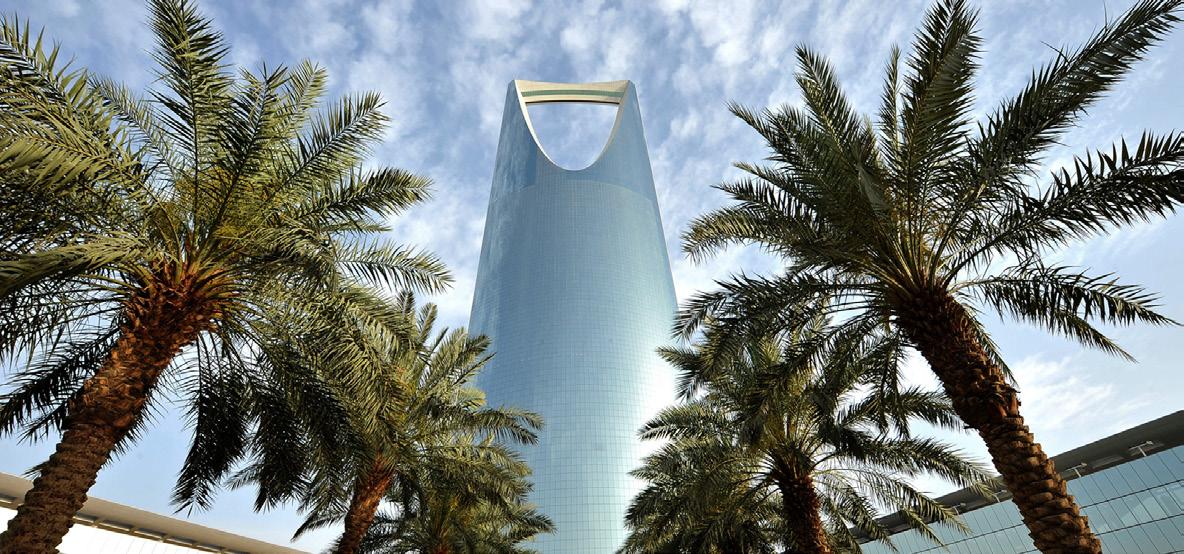

(think palm trees, water fountains and traditional Arabian architecture) with facilities including meeting rooms, a business centre, Hammam and indoor pool.
A more sustainable offering comes courtesy of the multi award-winning voco Riyadh, home to 23 meeting rooms, four restaurants, five spa rooms, a Moroccan bath, pool, and the city’s first EV charging point. Among its many green credentials, biodegradable personal hygiene items, energy-efficient shower heads, and plush bedding made from recycled plastic.
Riyadh is now home to renowned upscale brands such as Hakkasan, Cipriani, and Mamo, but for some regional flair and food, head to Maiz, a restaurant with grand interiors and huge chandeliers that’s on a mission to put Saudi food on the map, with its innovative spin on traditional dishes.

If you can only do one thing At sunset, head to the Sky Bridge at the top of the 300m-
tall Kingdom Centre for dramatic views of the city and surrounding desert.
As per Saudi Arabian law, alcohol is forbidden, and modest clothing is required. Transport-wise, opt for Saudi’s new airline Riyadh Air, which delivers the newest, most efficient planes and is committed to using Sustainable Aviation Fuel; while Careem and Uber are widely used taxi apps. Riyadh’s brand-new Metro, opening in 2024, will deliver six lines and 84 stations. The Meet & Greet service at Riyadh Airport is well worth the riyals.
For women travelling to Saudi, most hotels offer separate fitness and wellness spaces for women, or opt for the centrally-located five-star women-only Luthan Hotel & Spa. Download the Leena ride-hailing app where all drivers are women.


11 - 12 October 2023
1,000+ Virtual Attendees
2 Day Learning and Networking Event
30+ Acclaimed Speakers
6 Interactive Panel Discussions
SPONSORSHIPS GET YOUR PASS